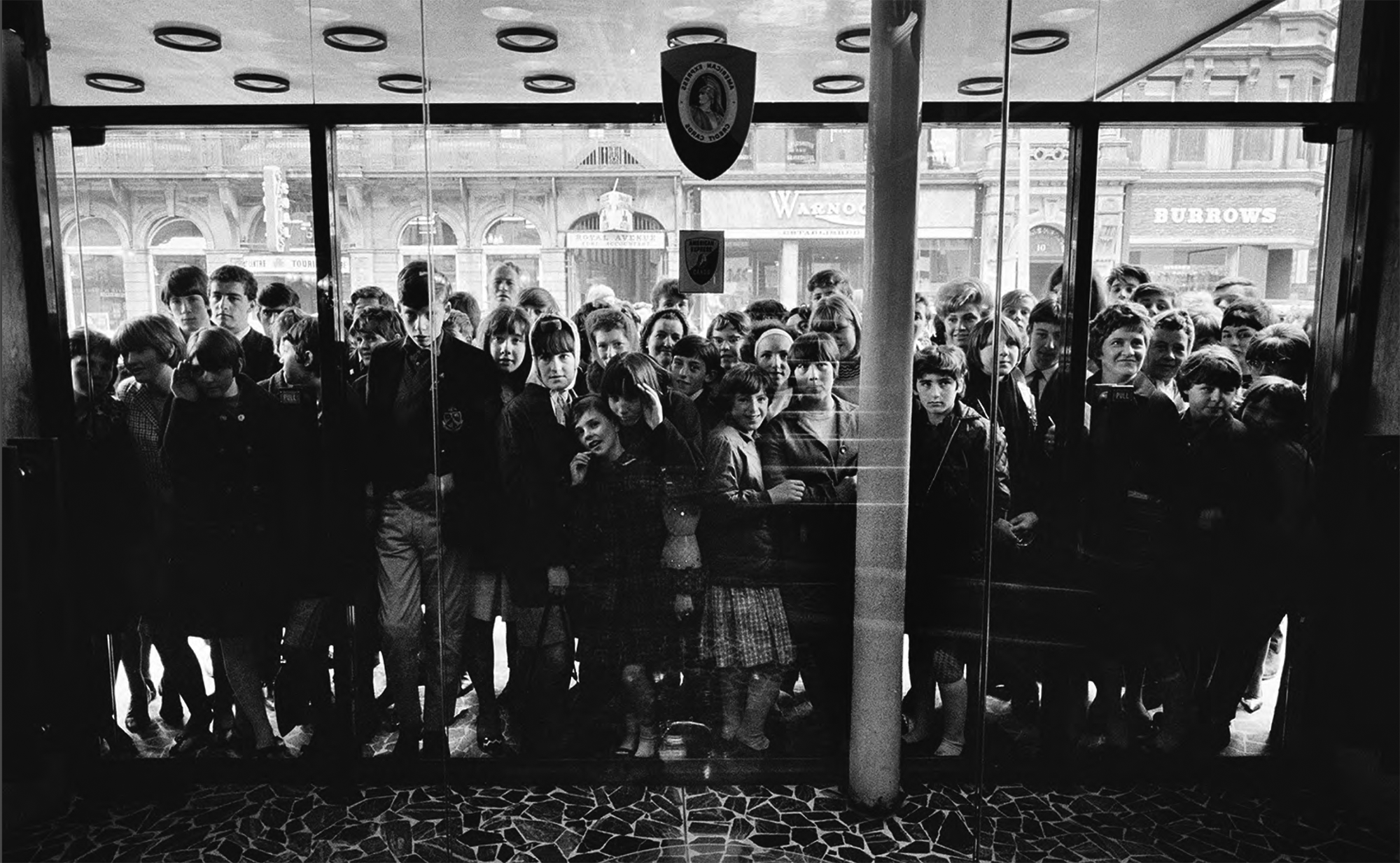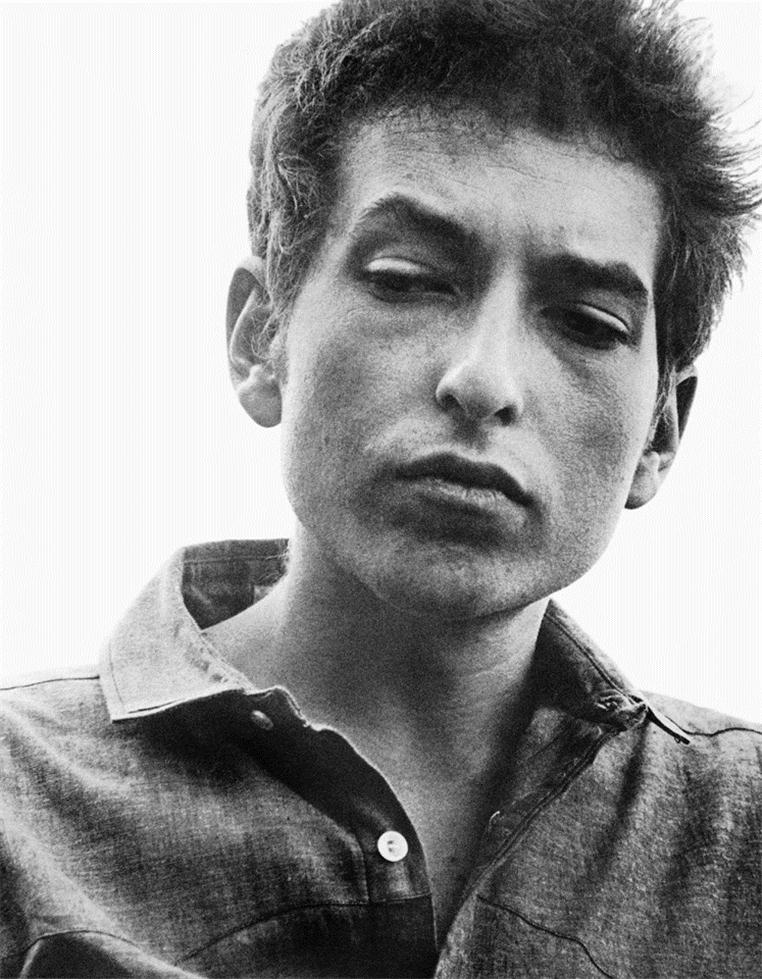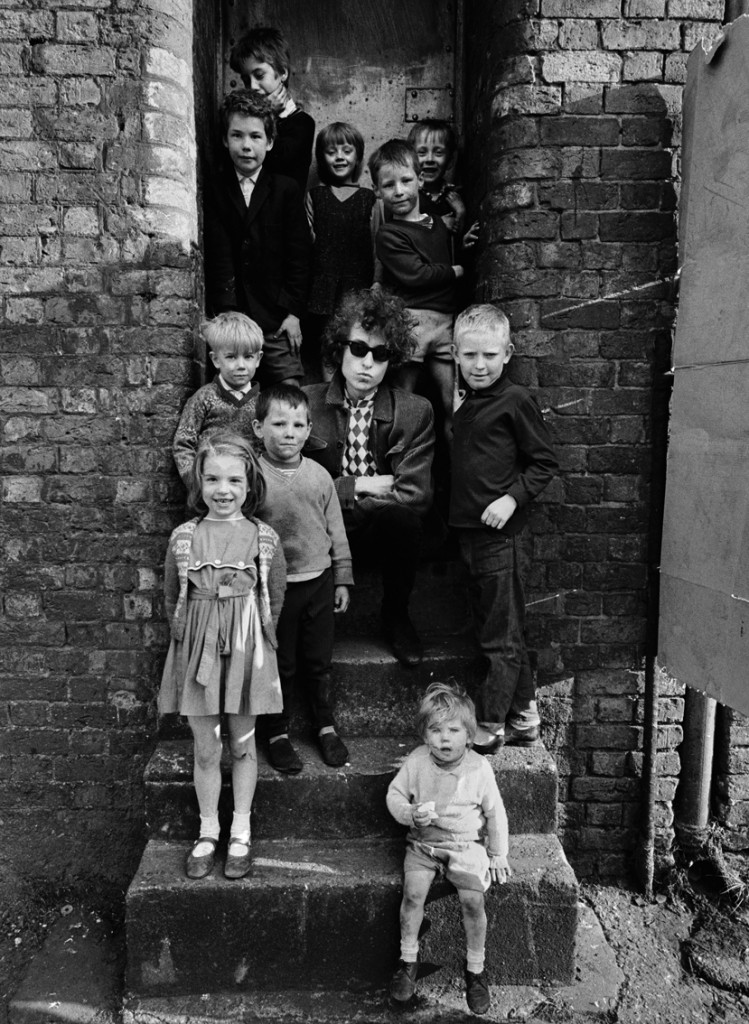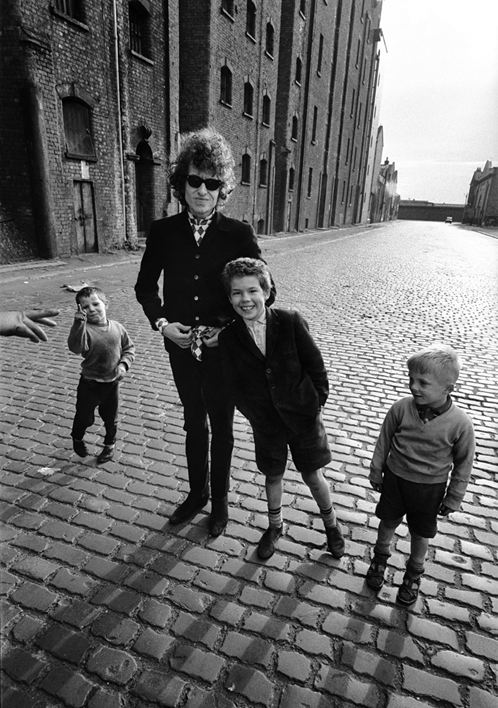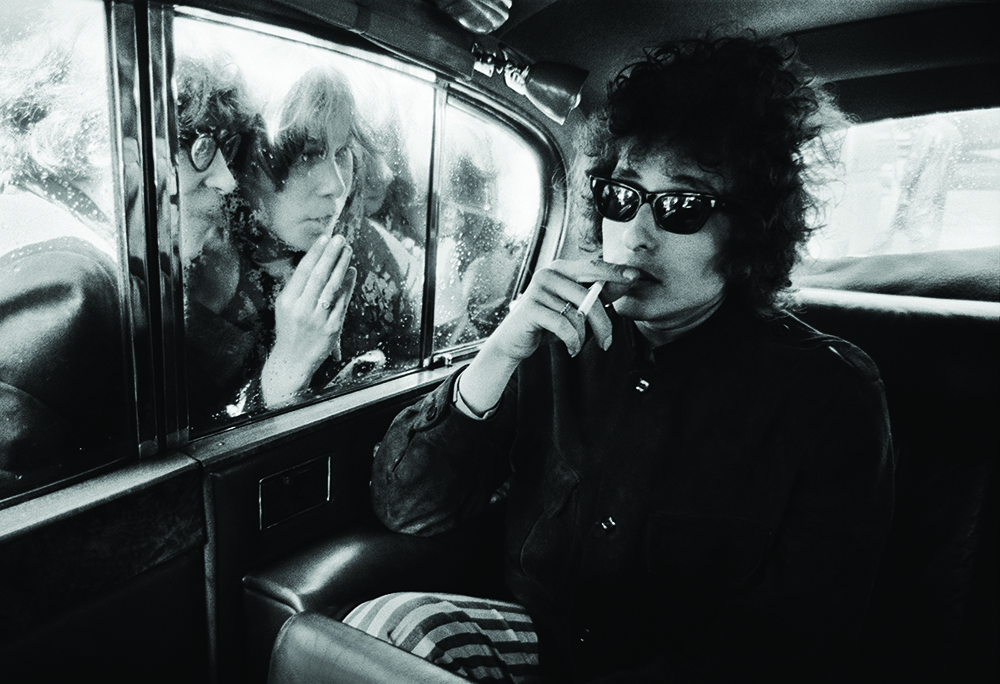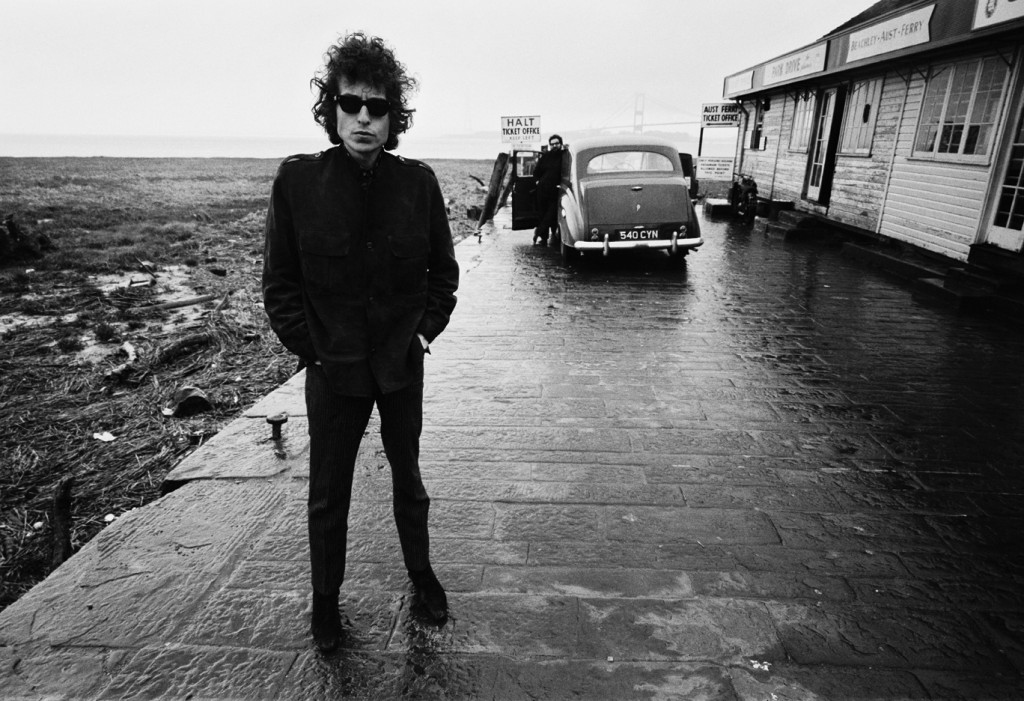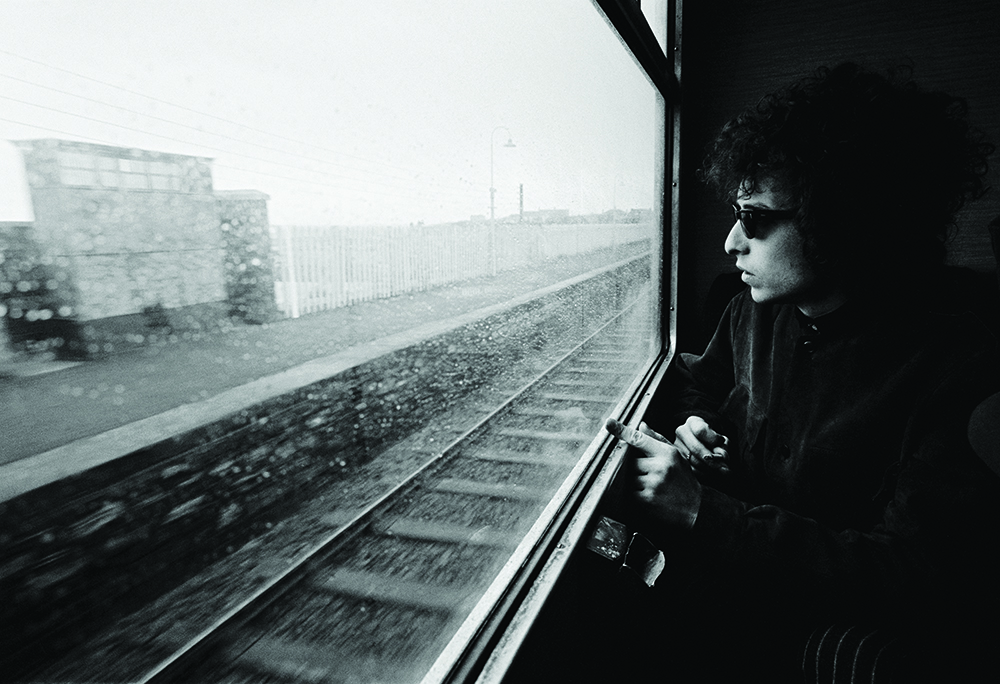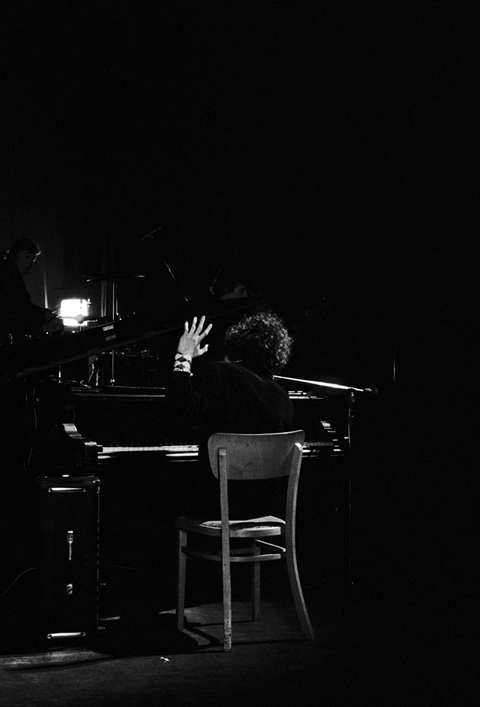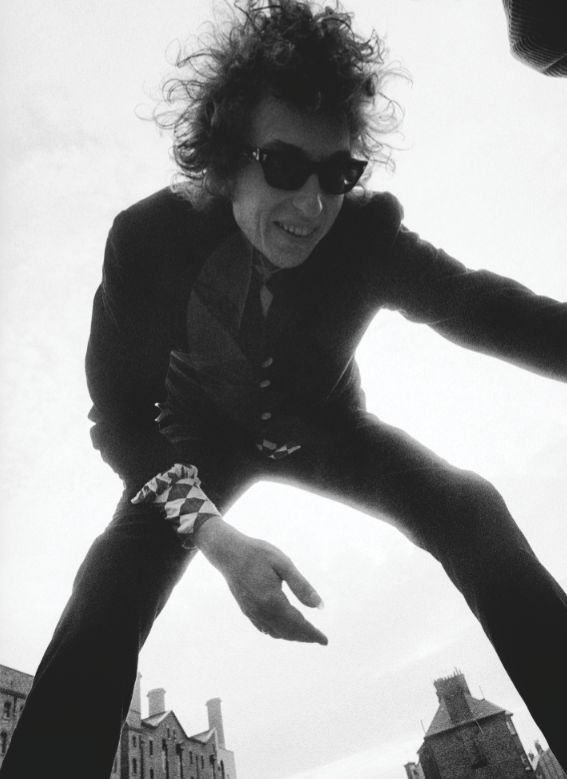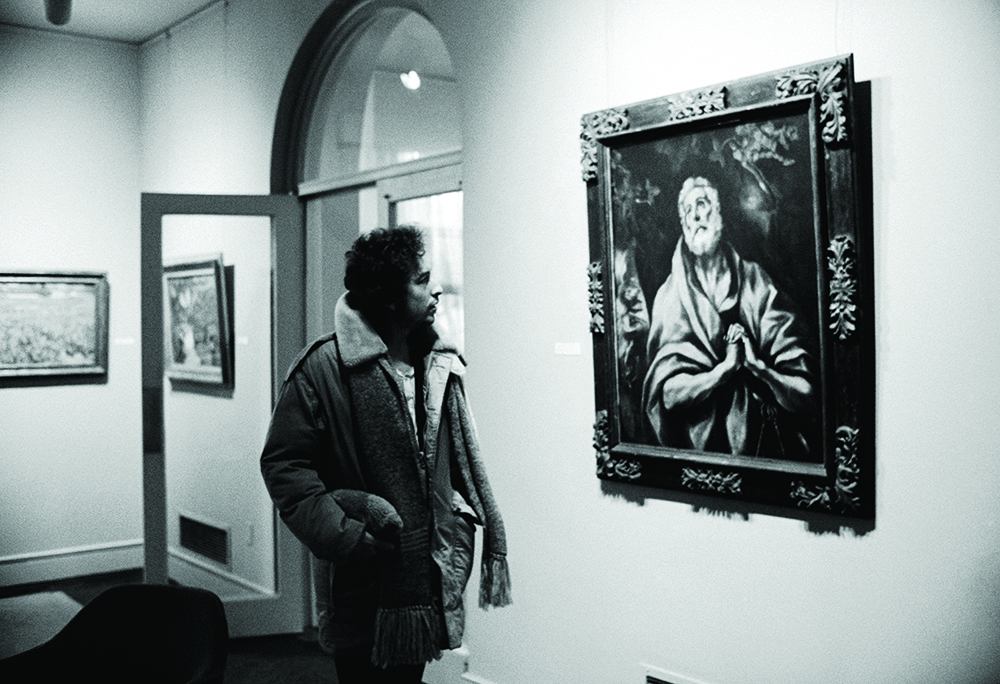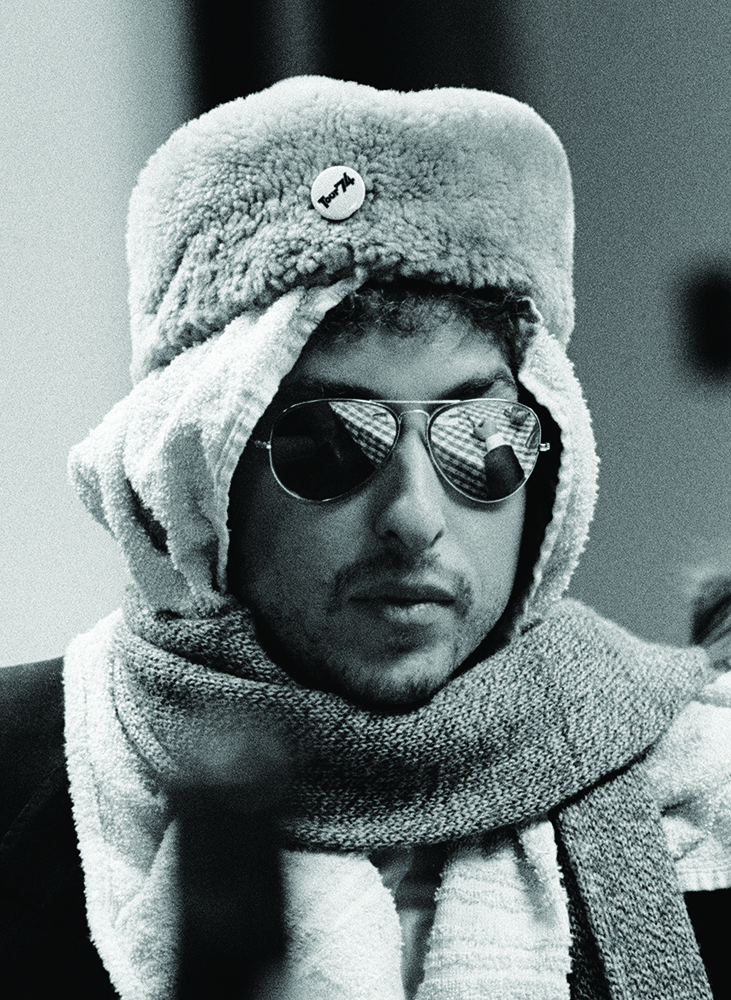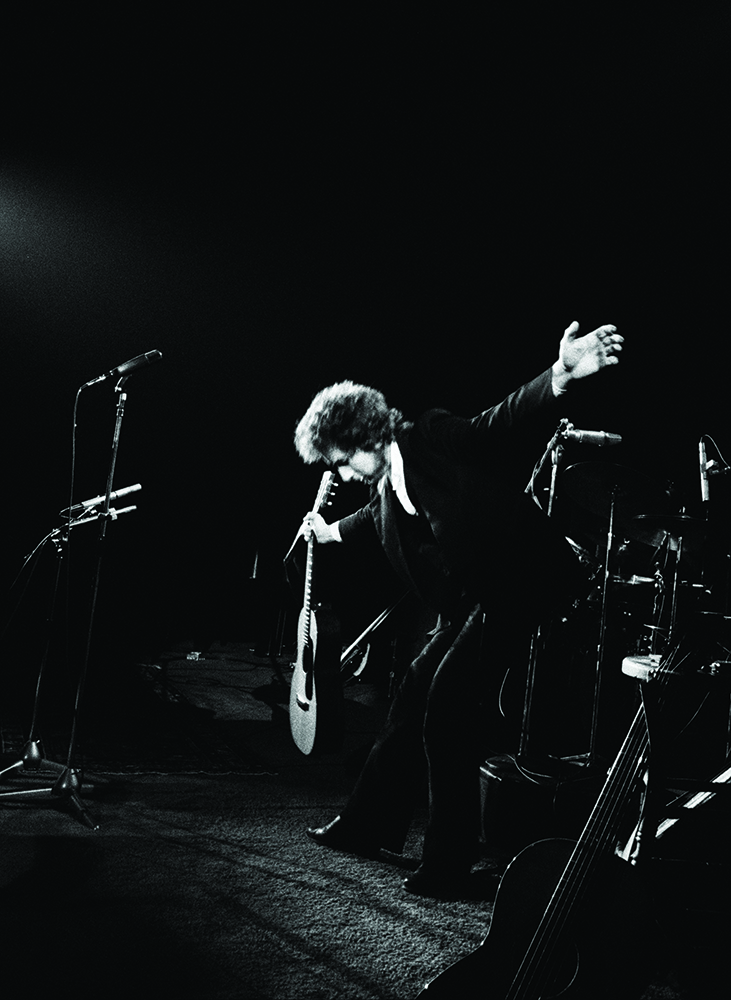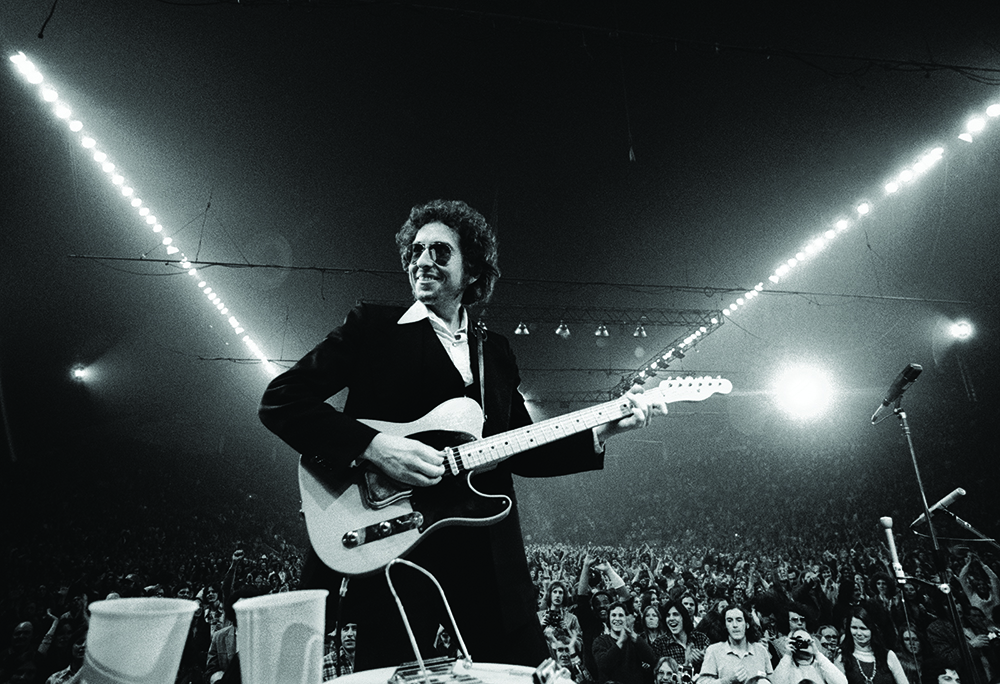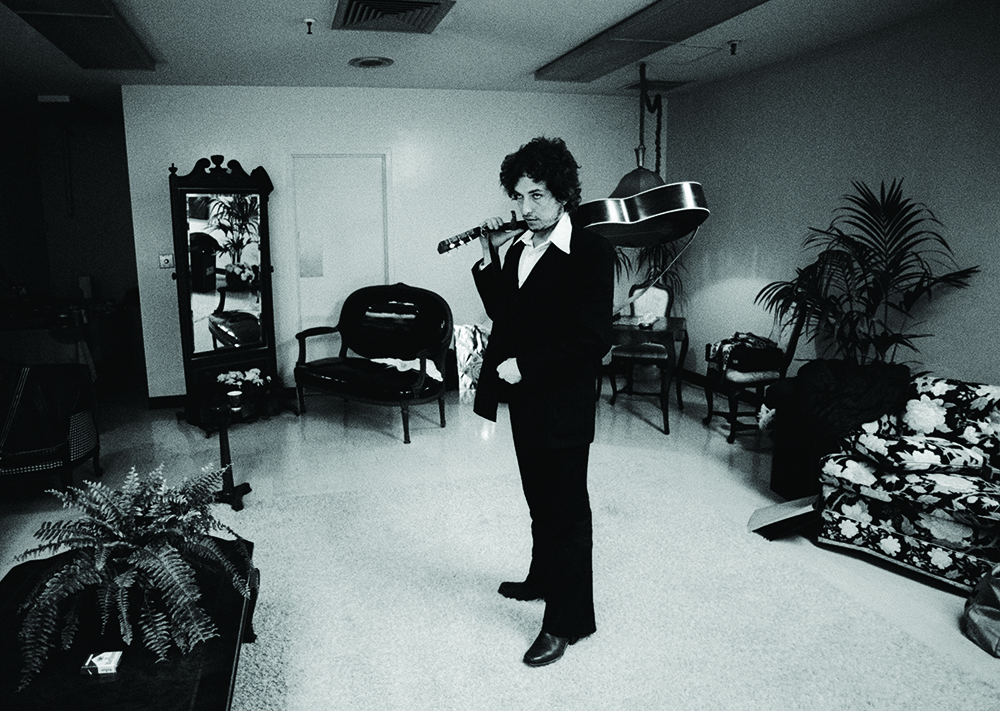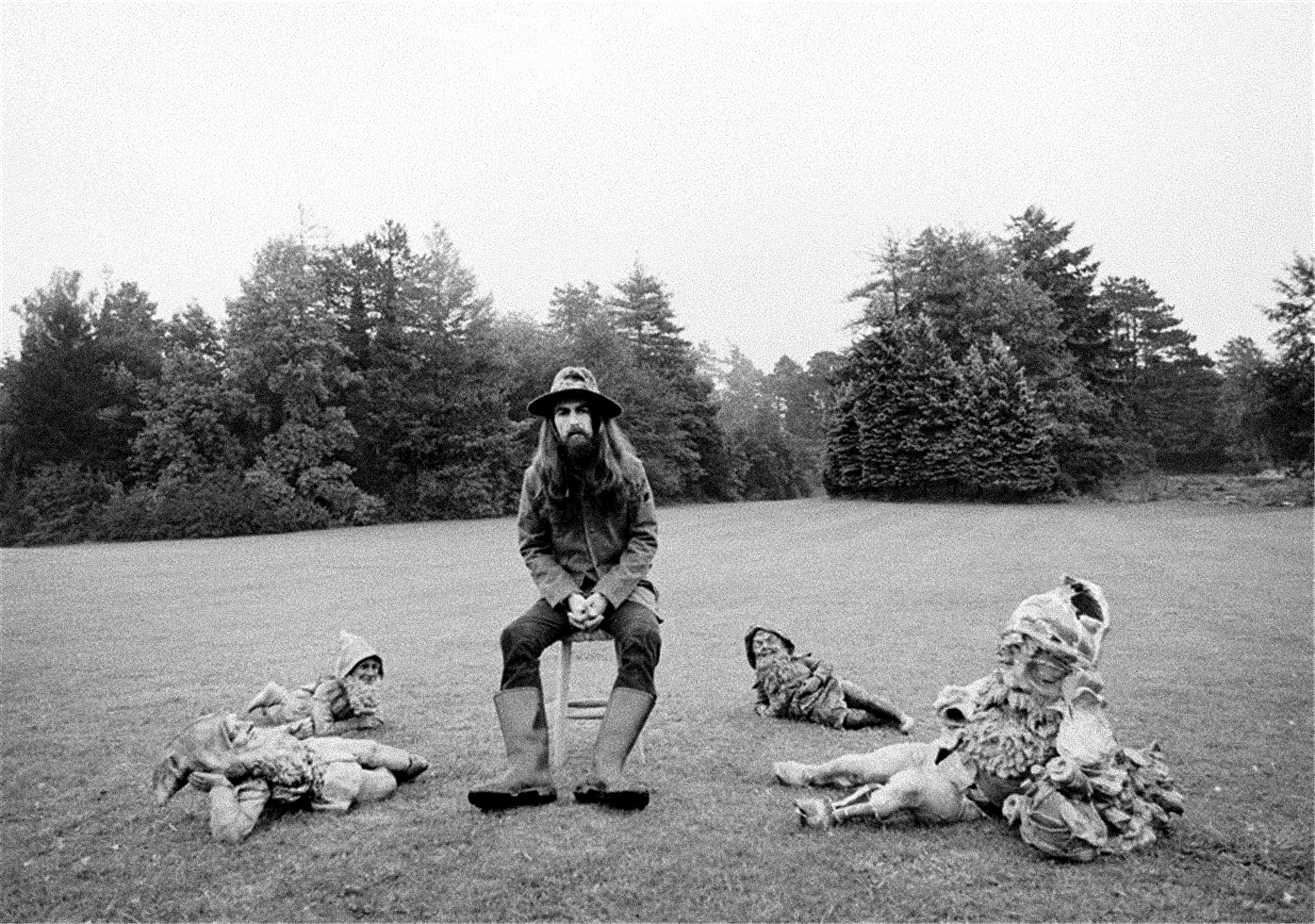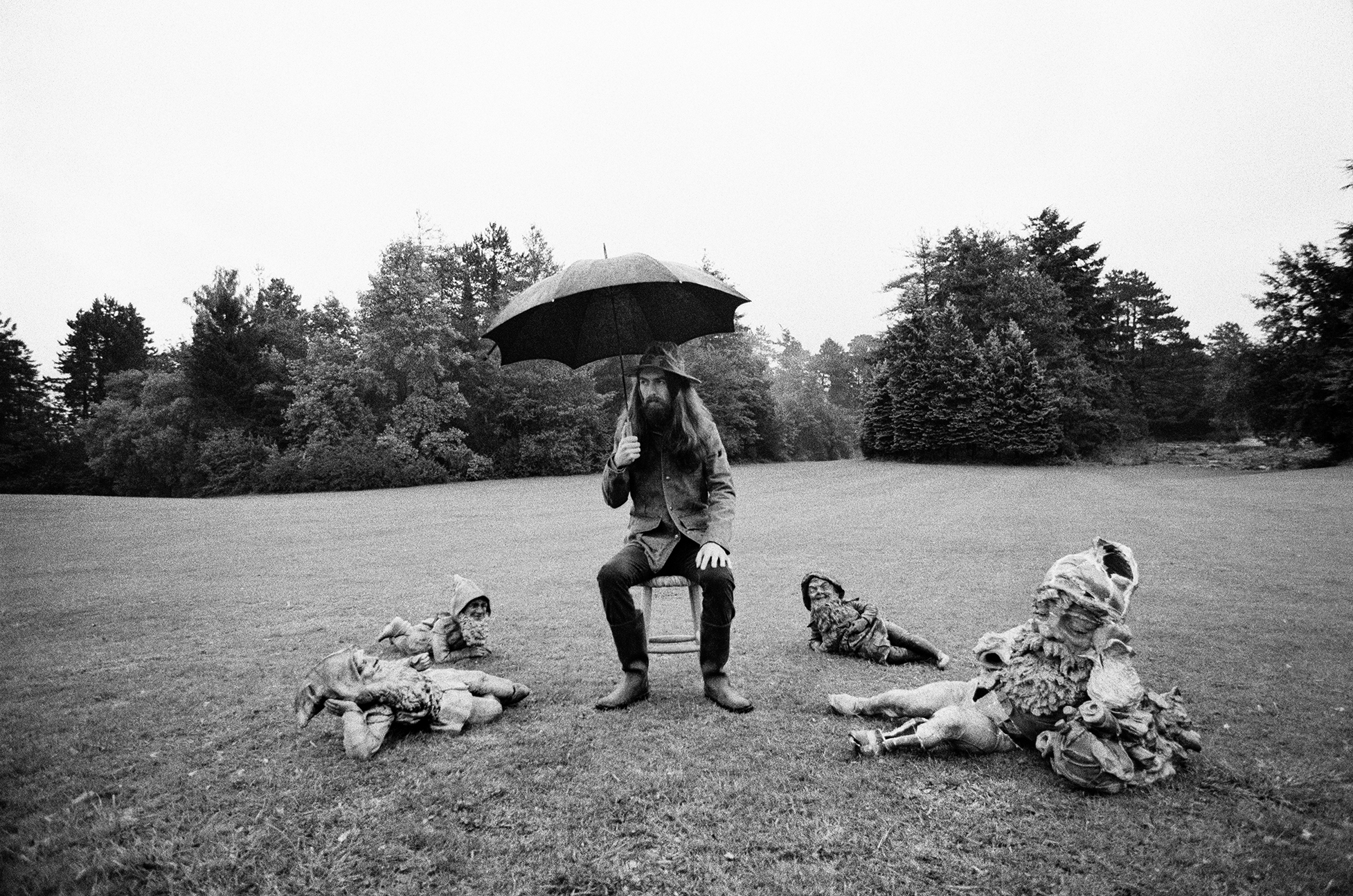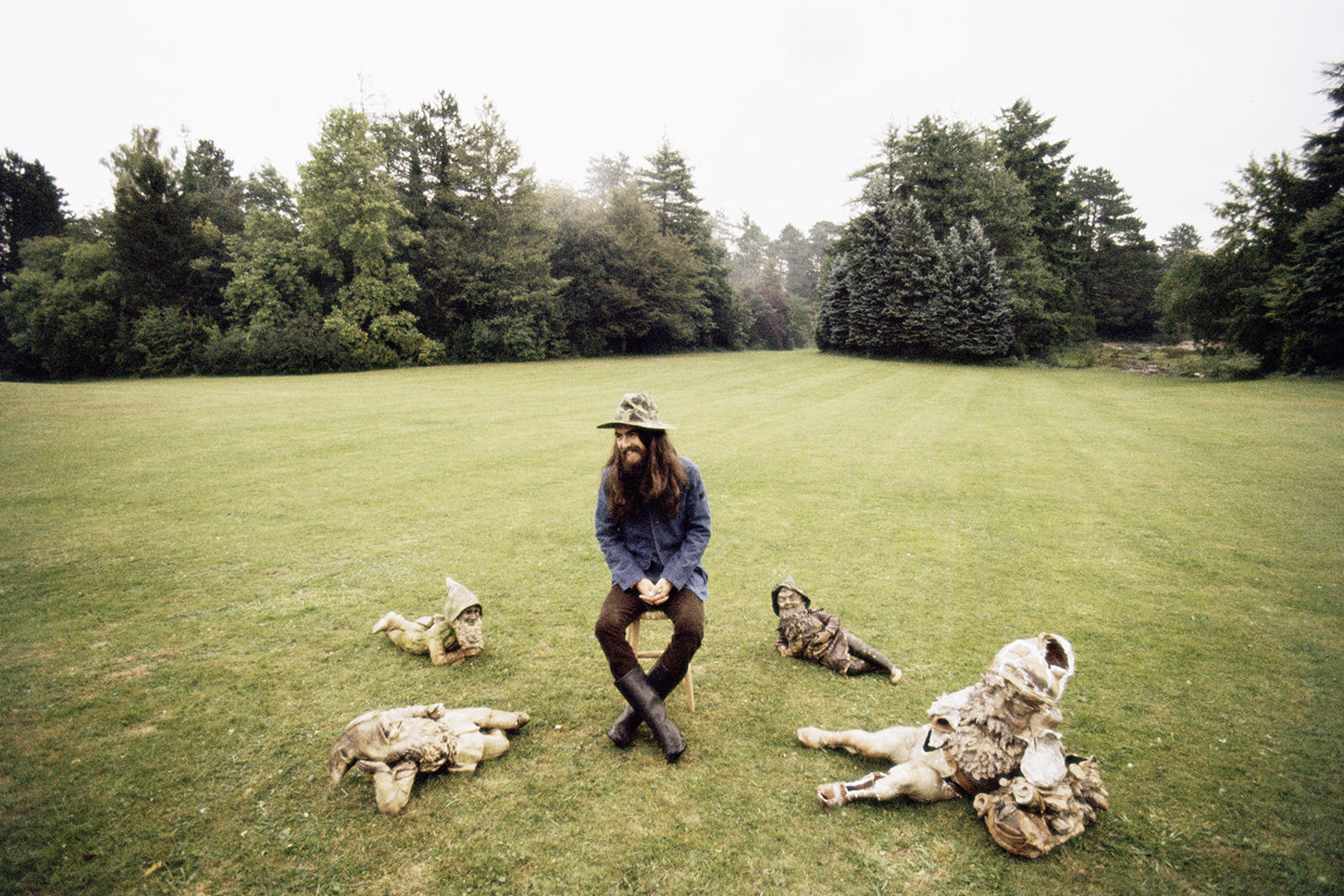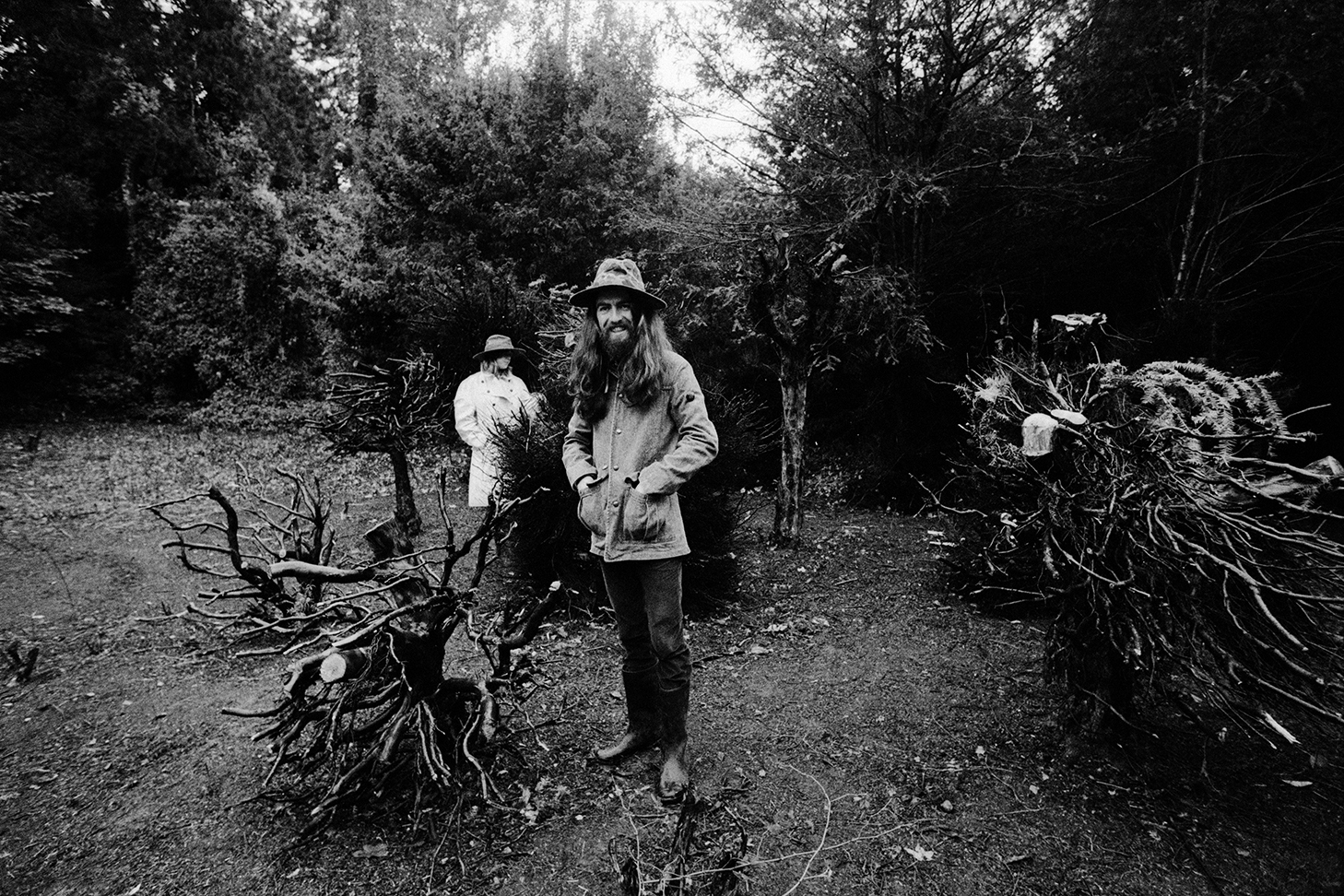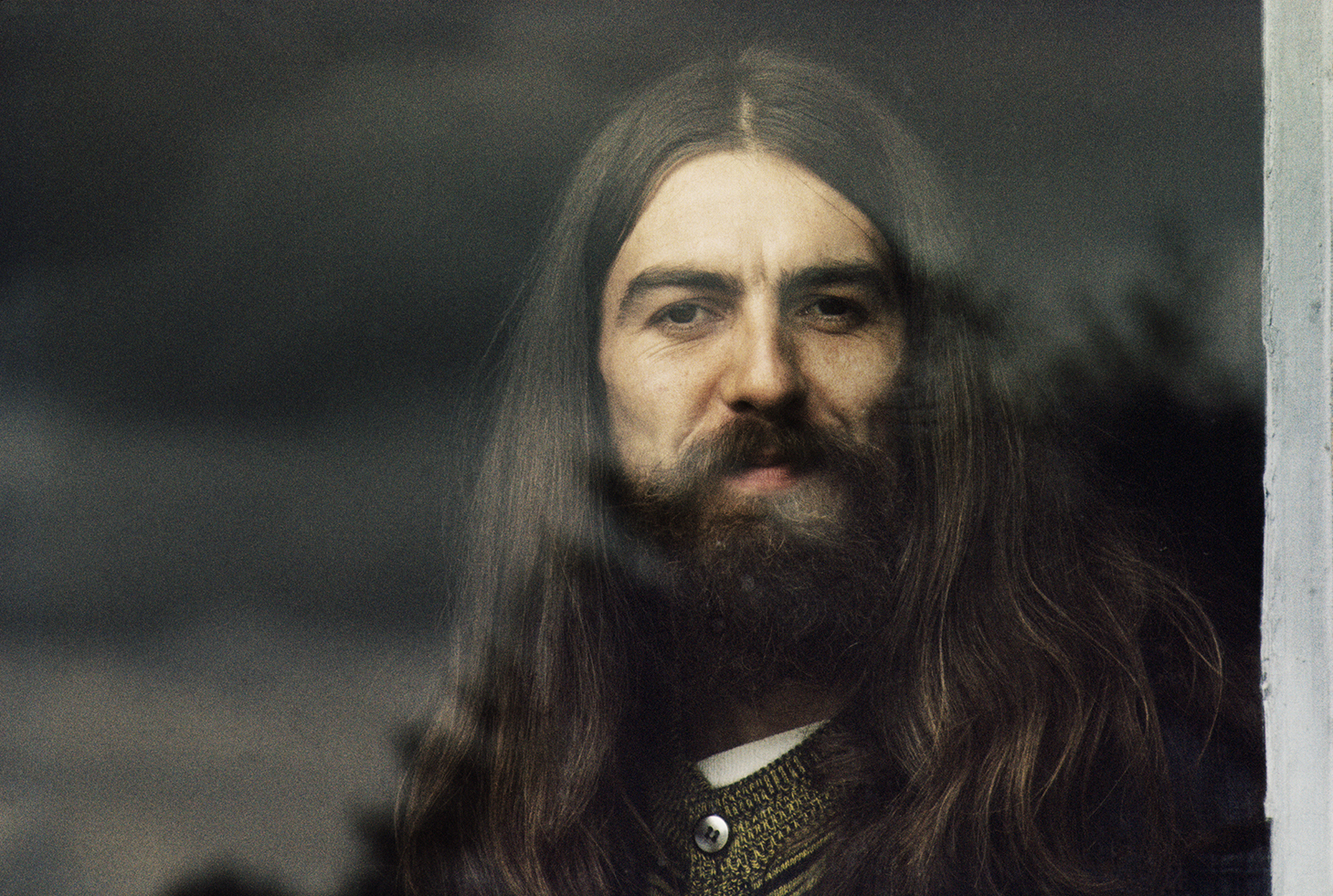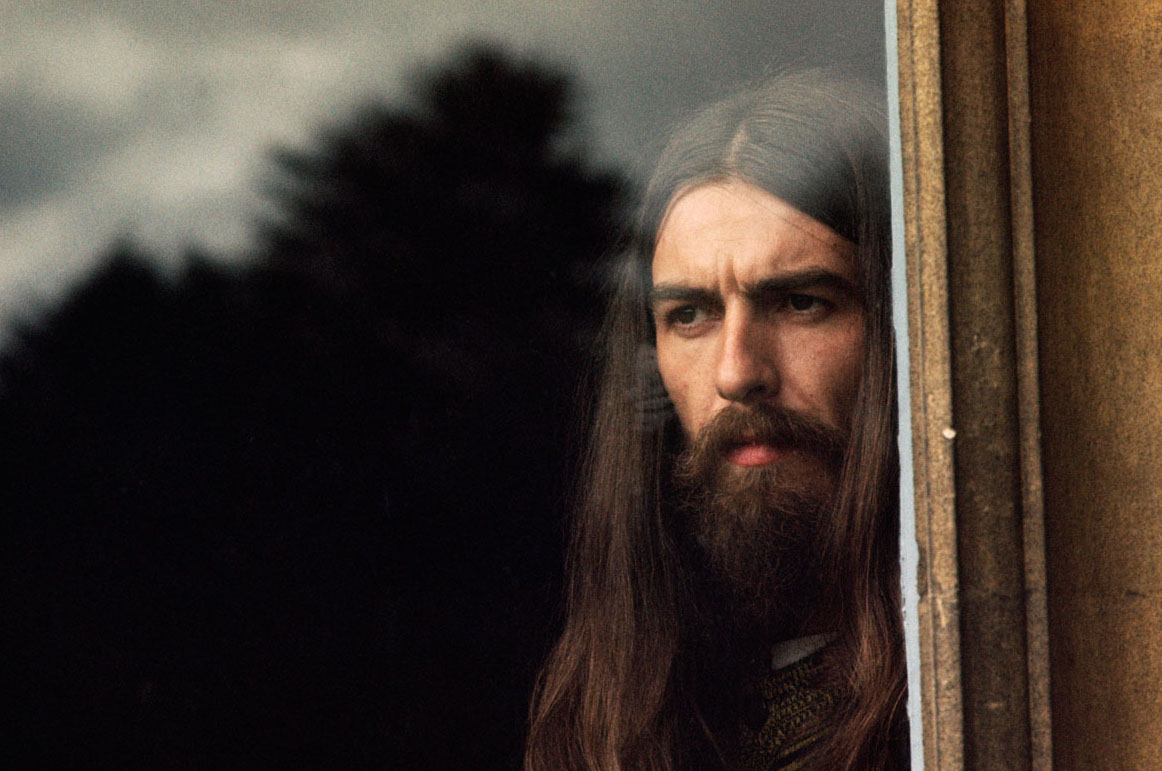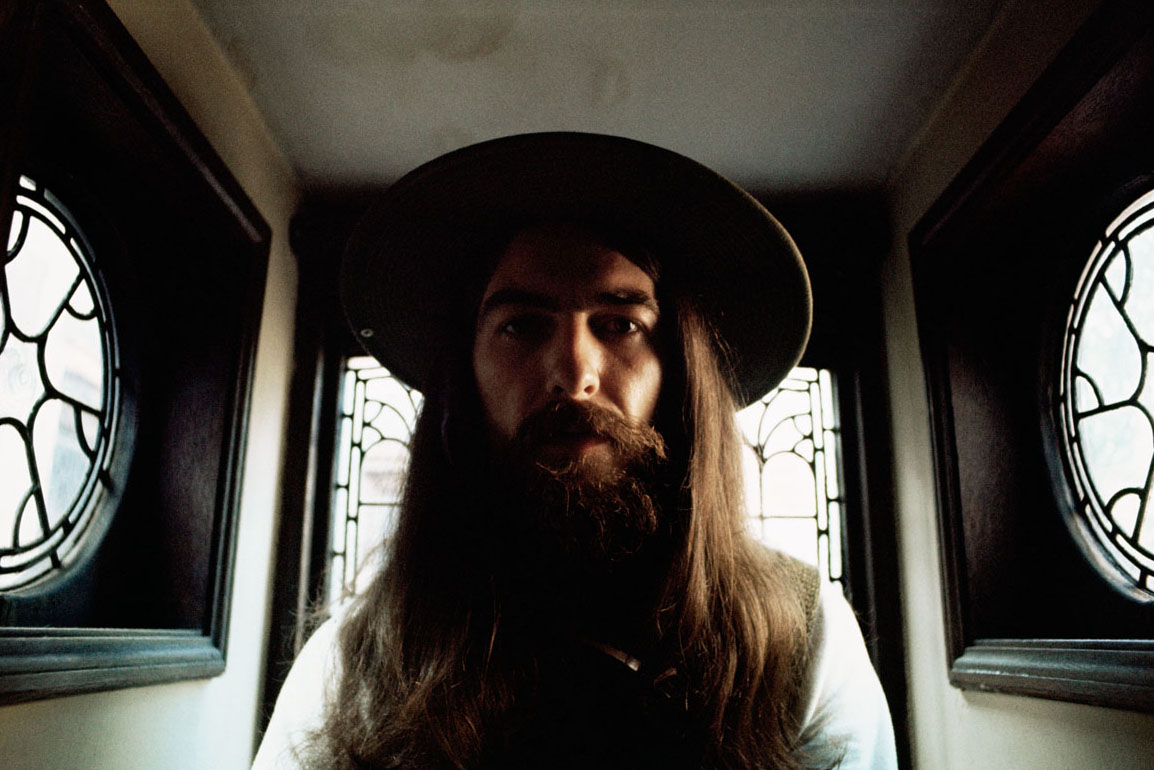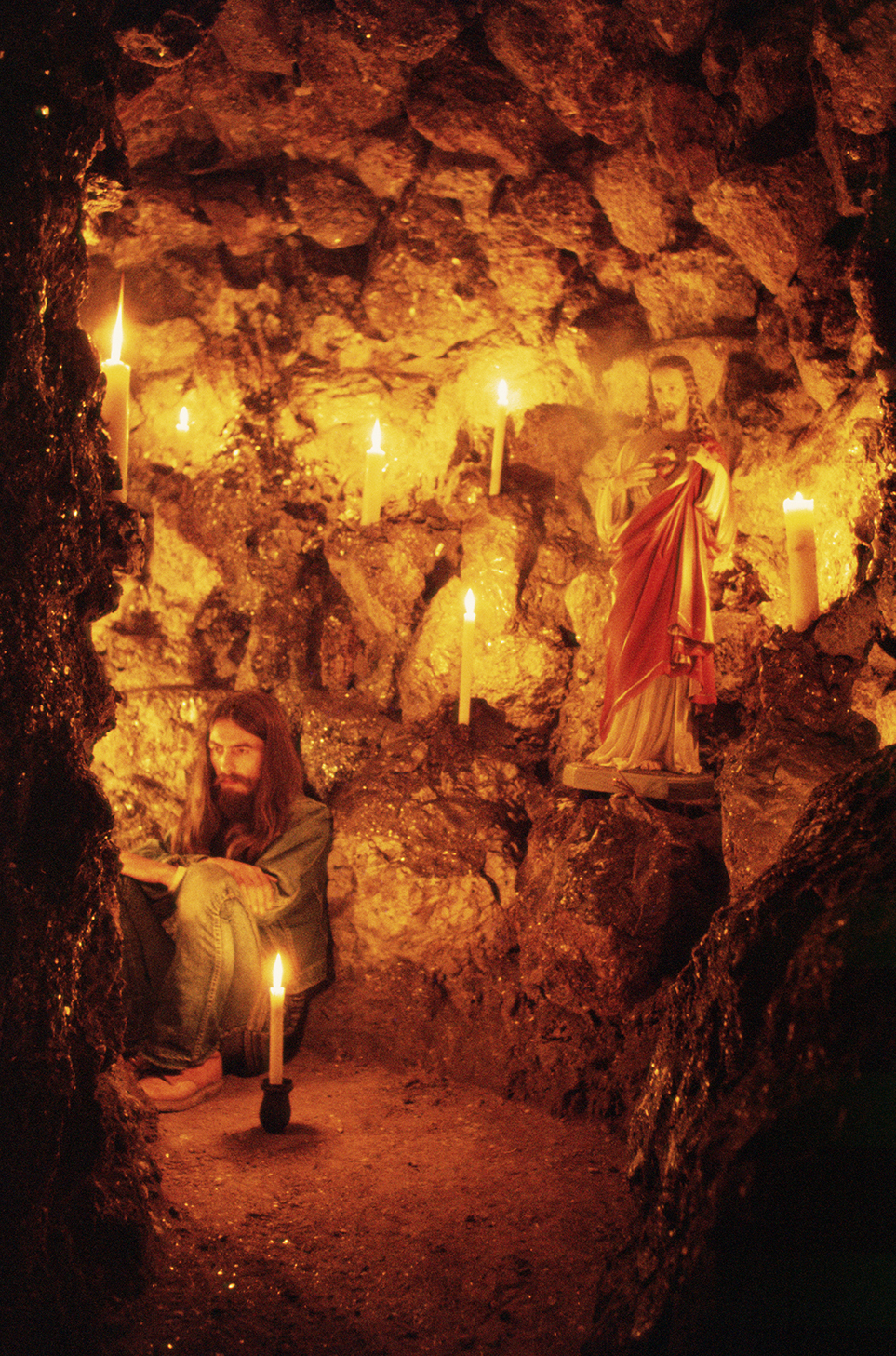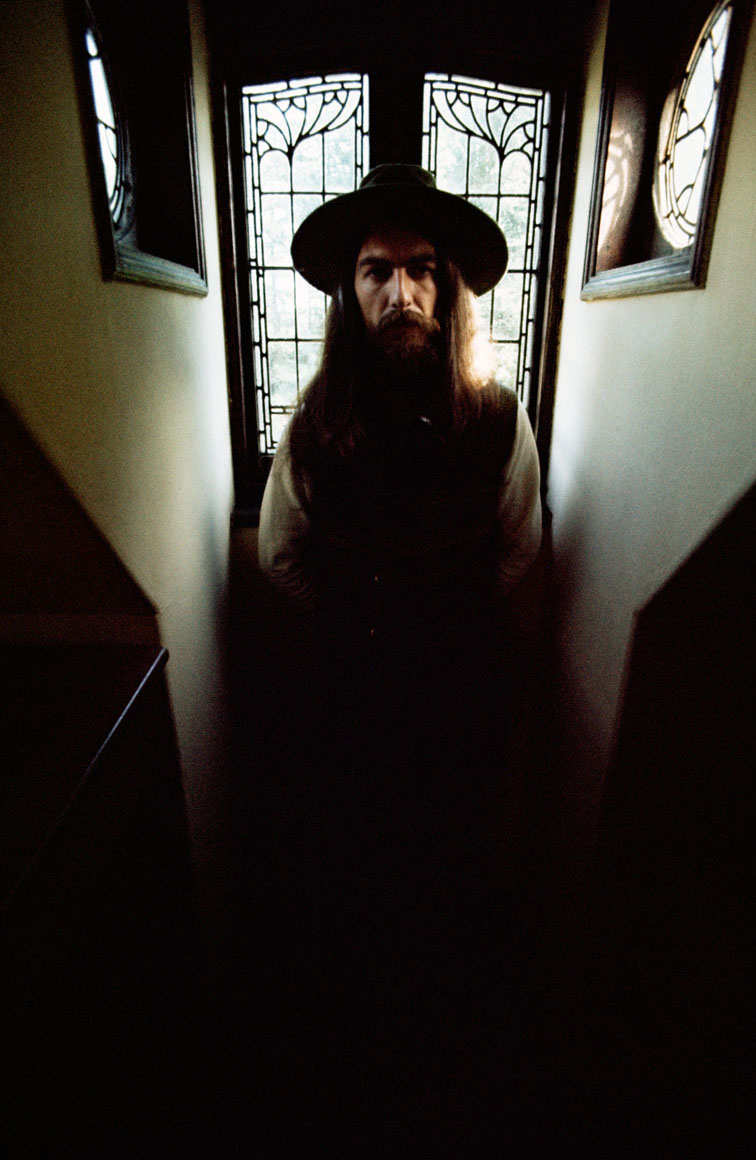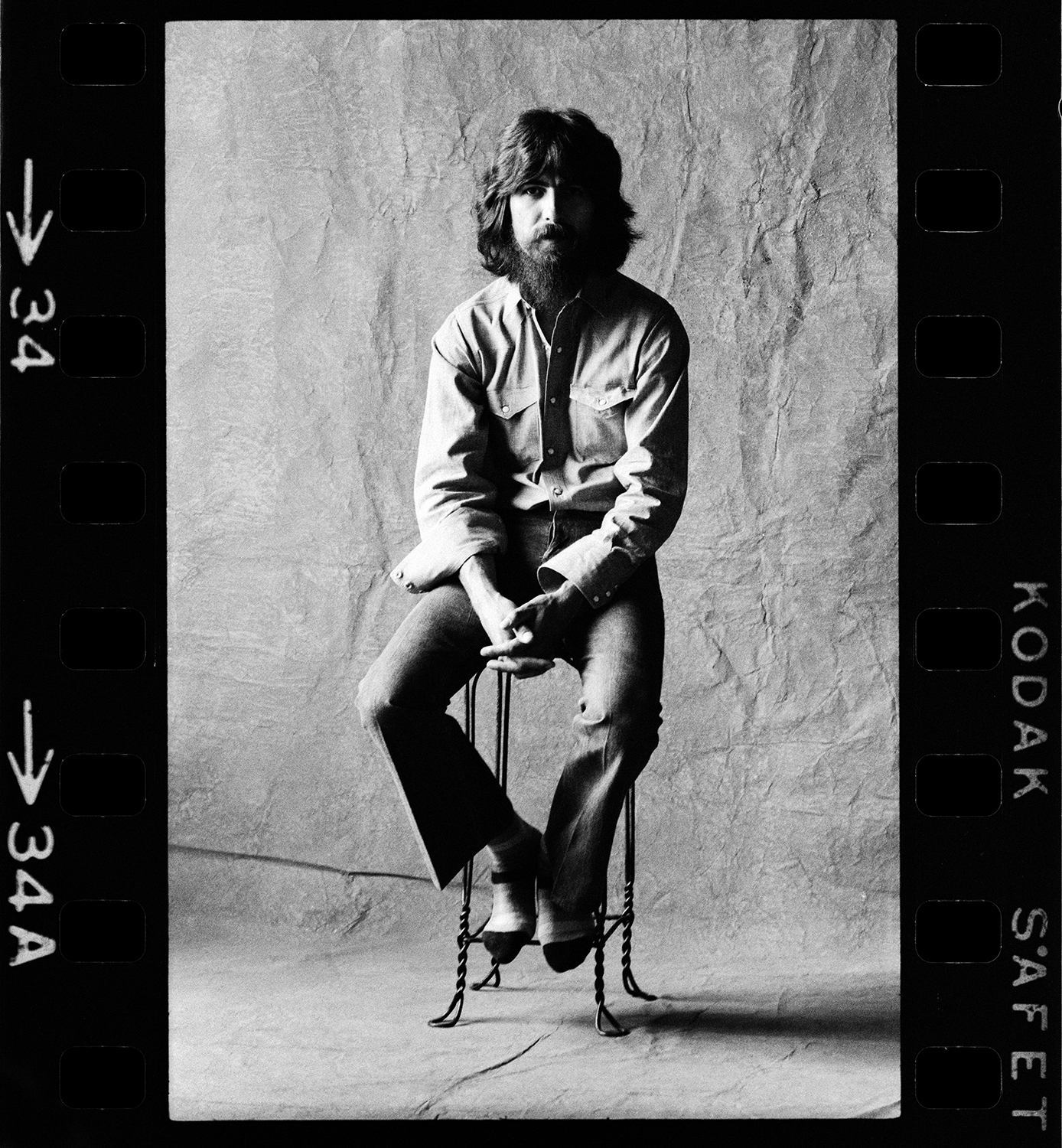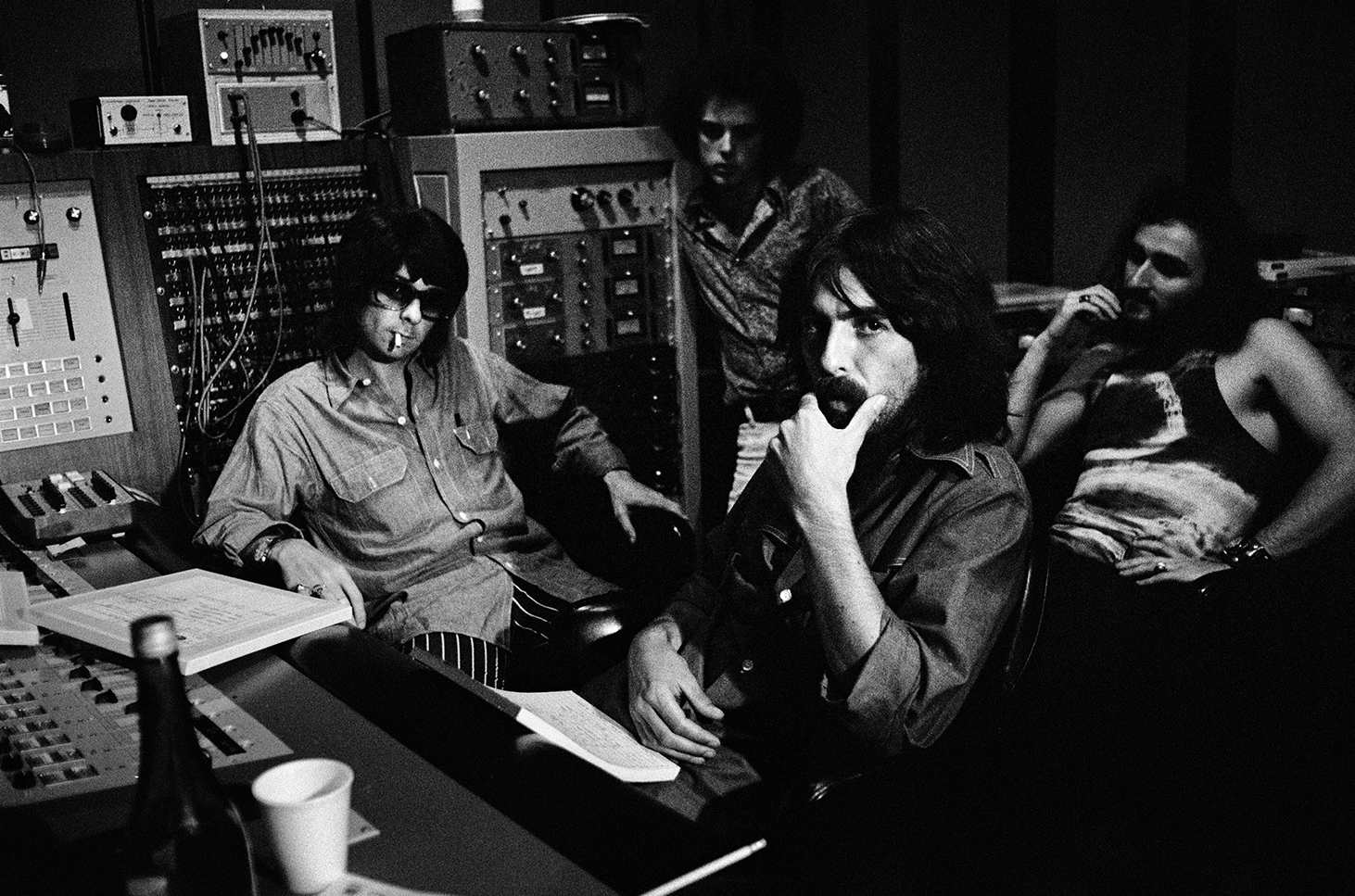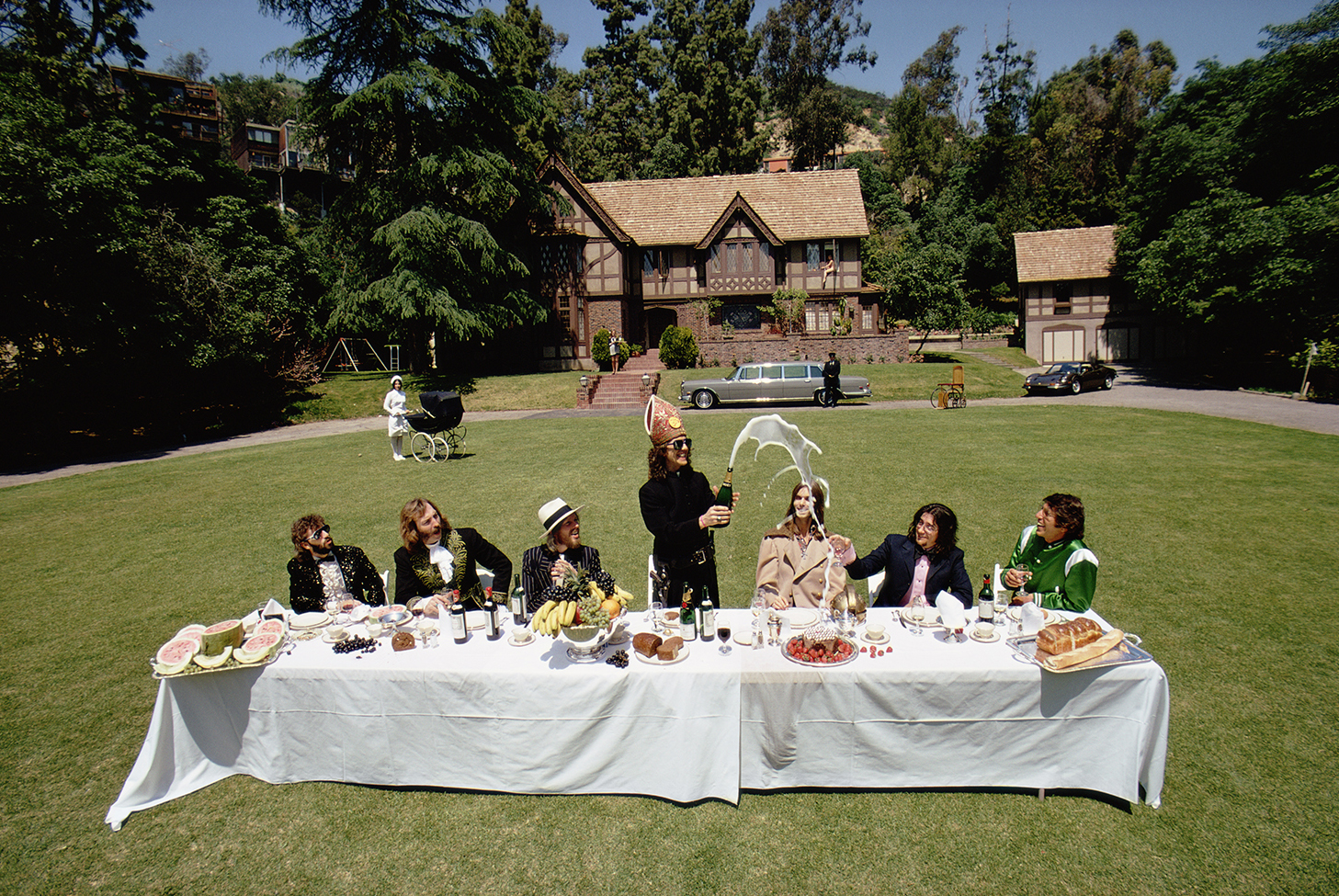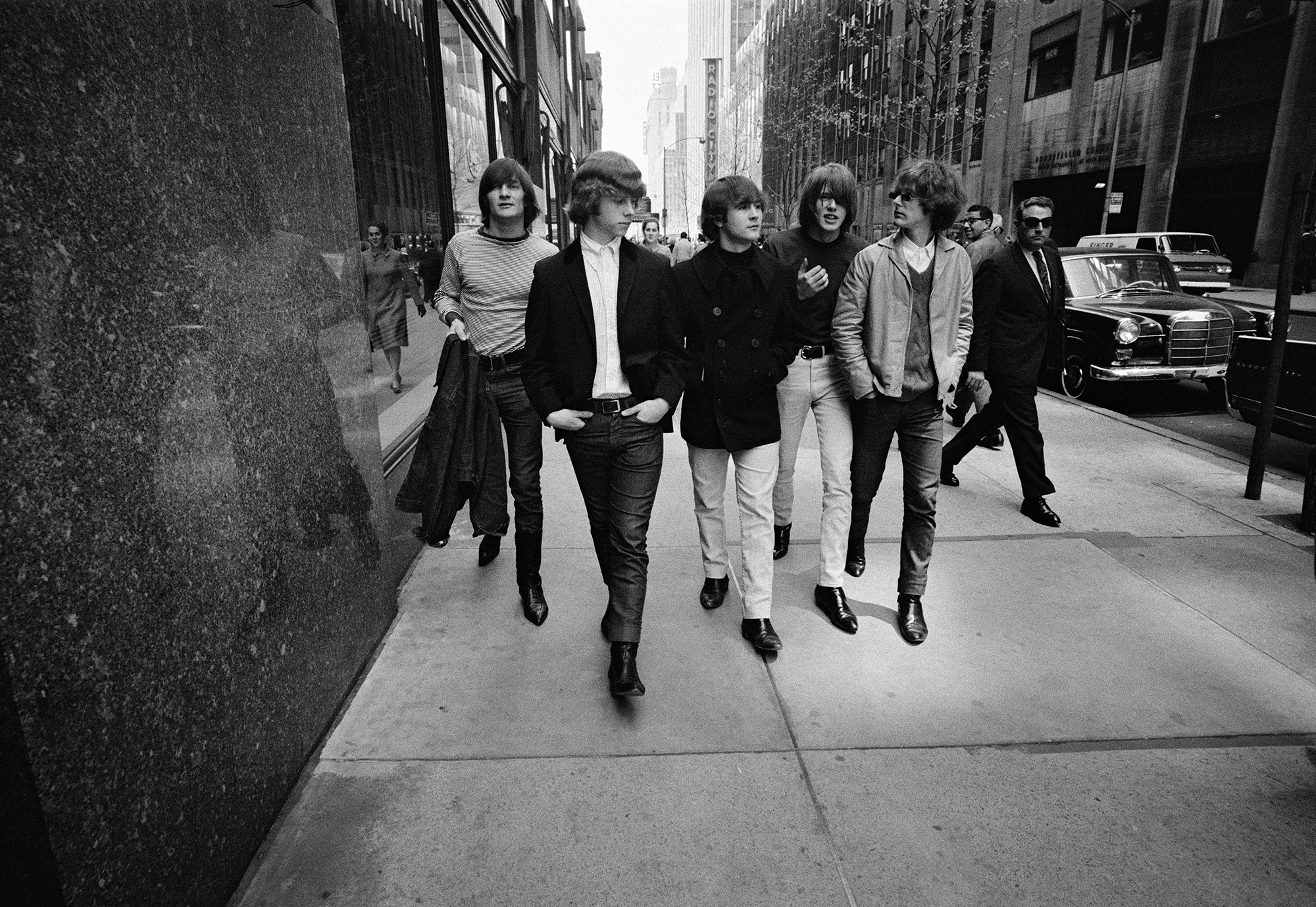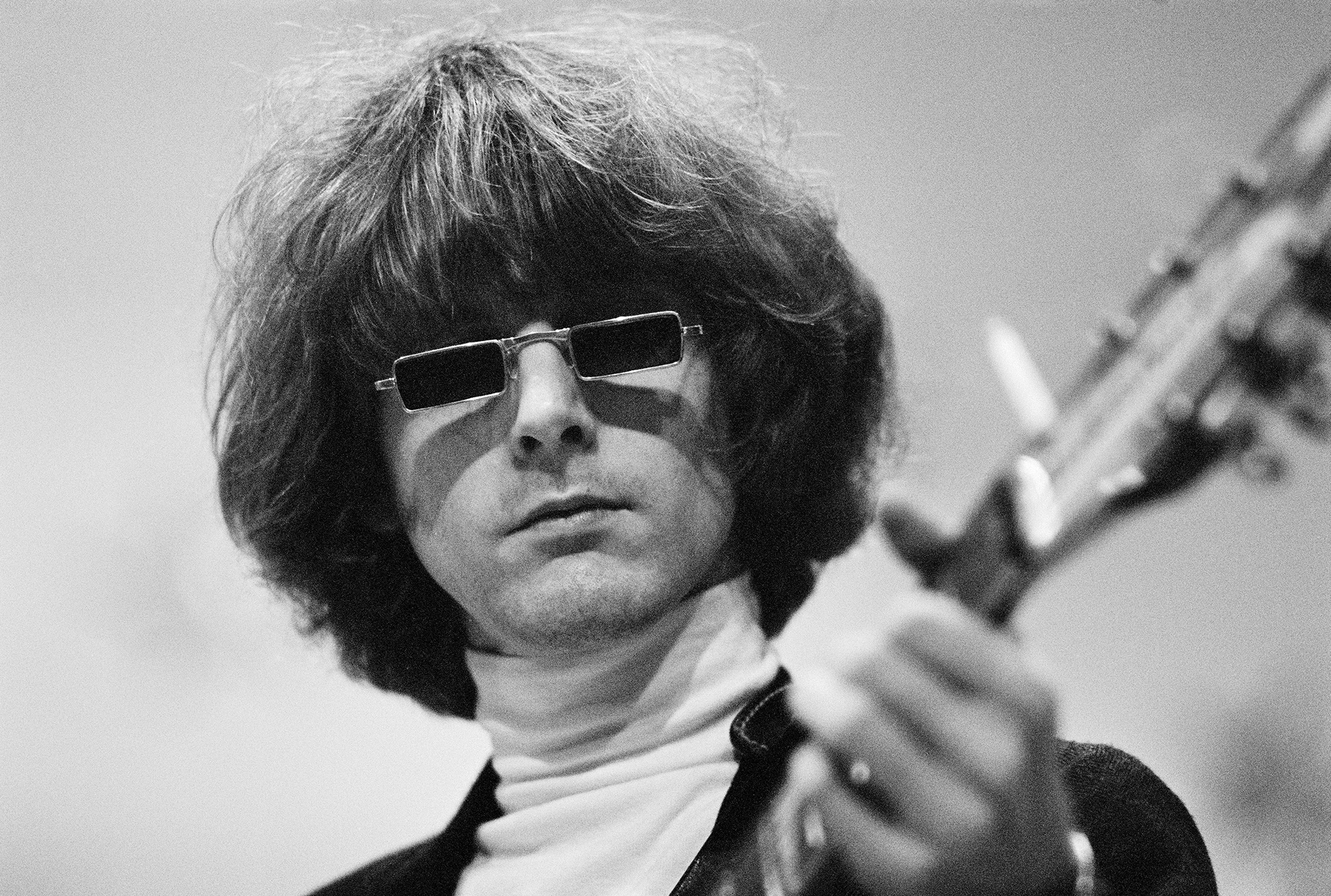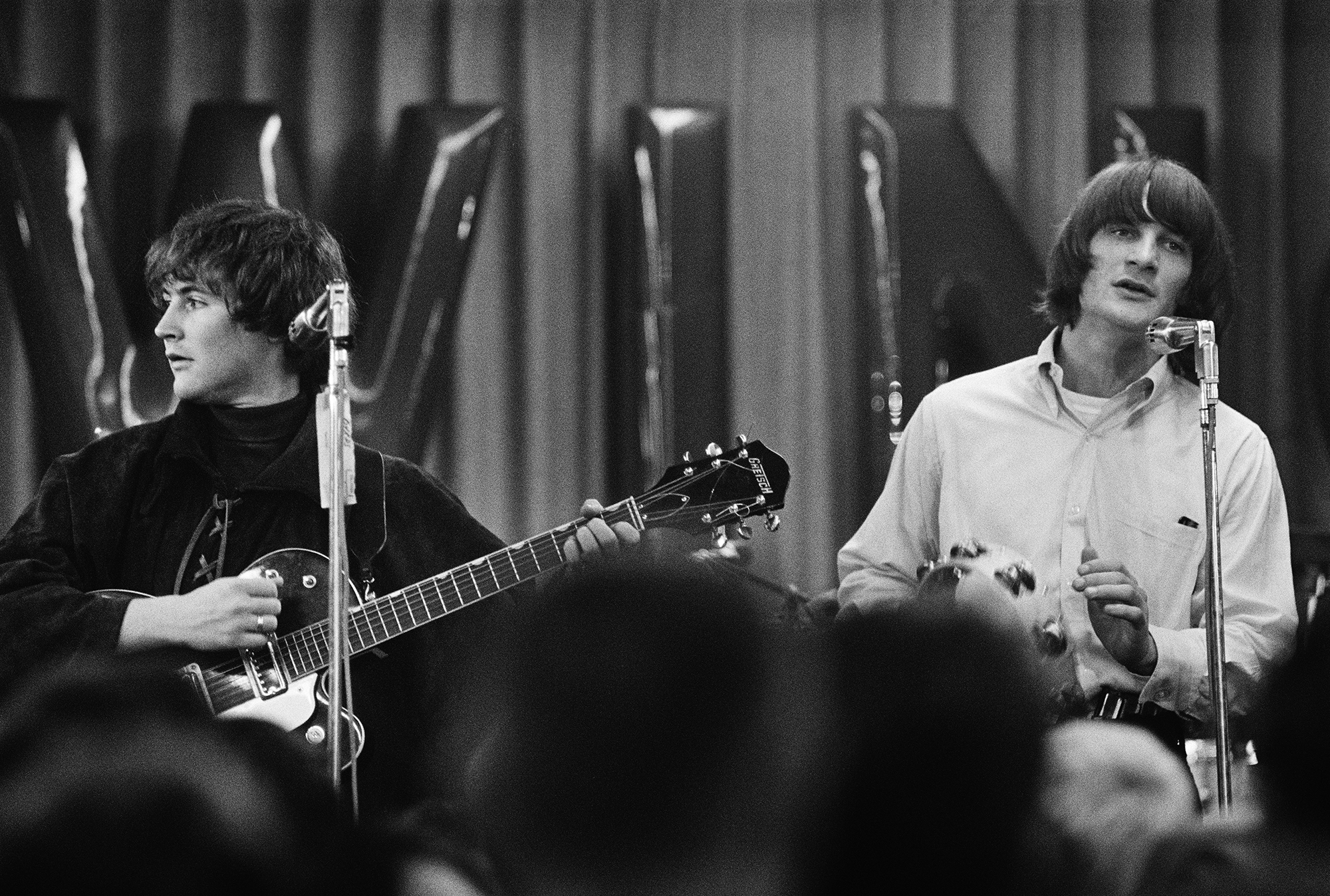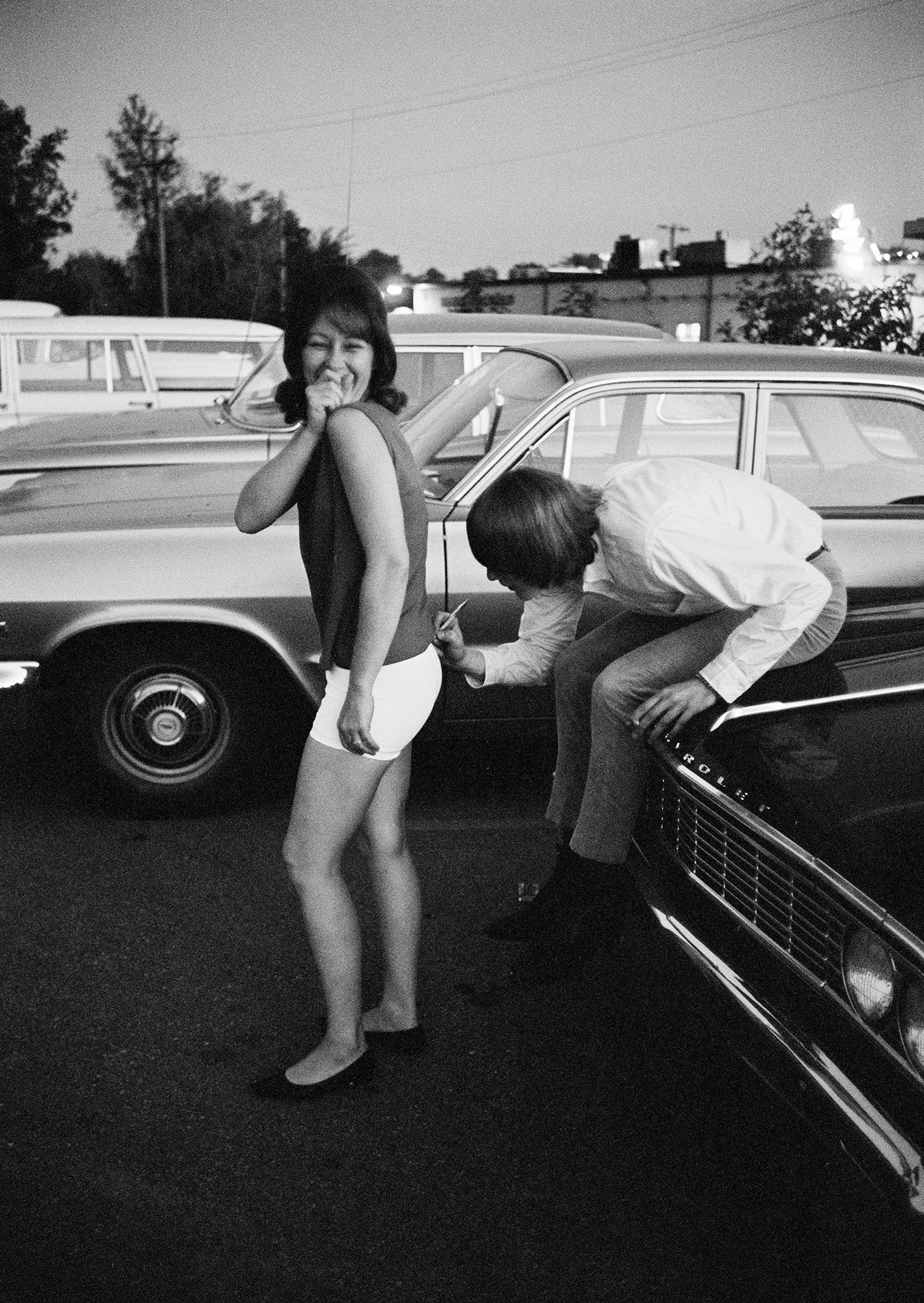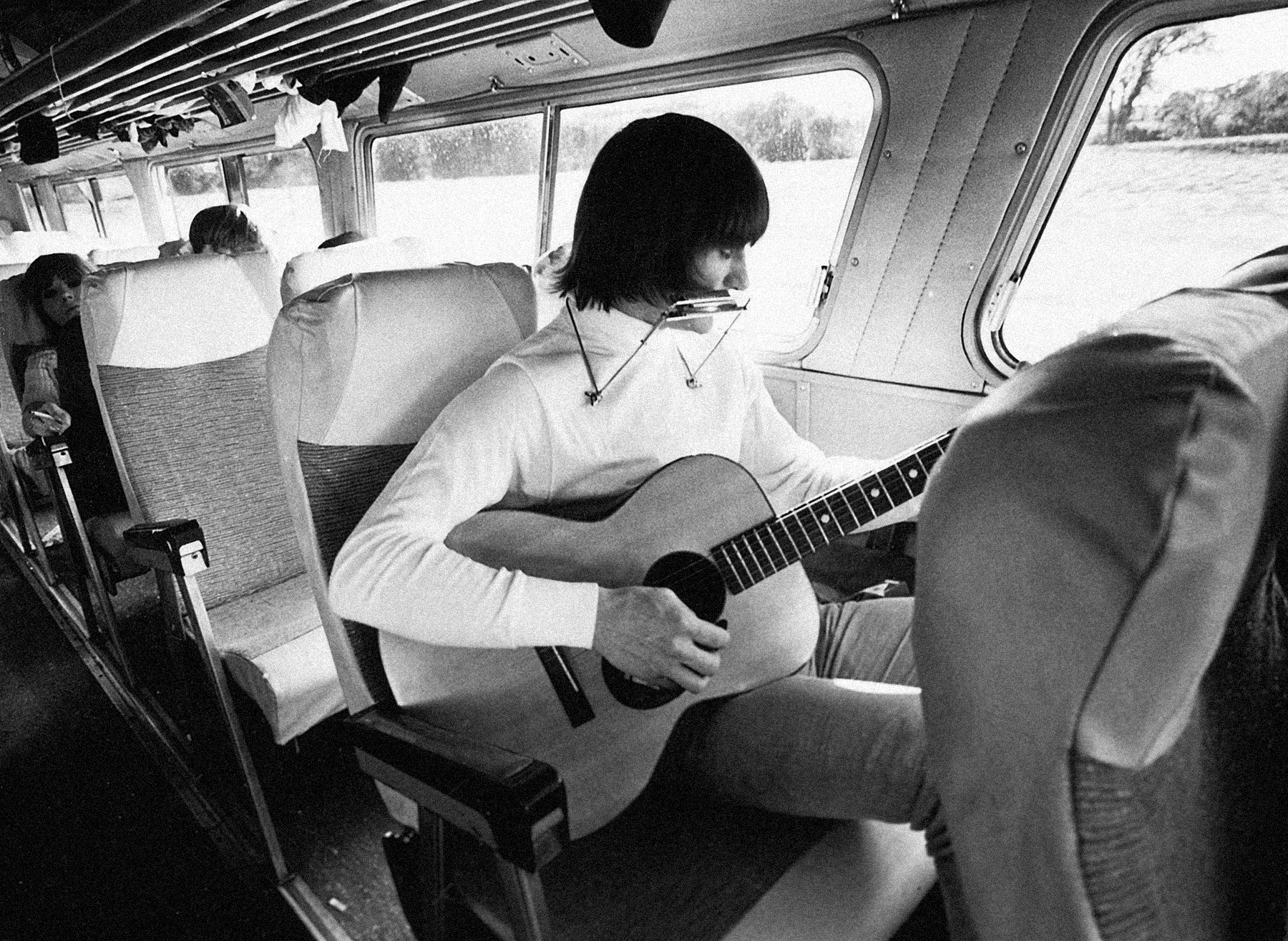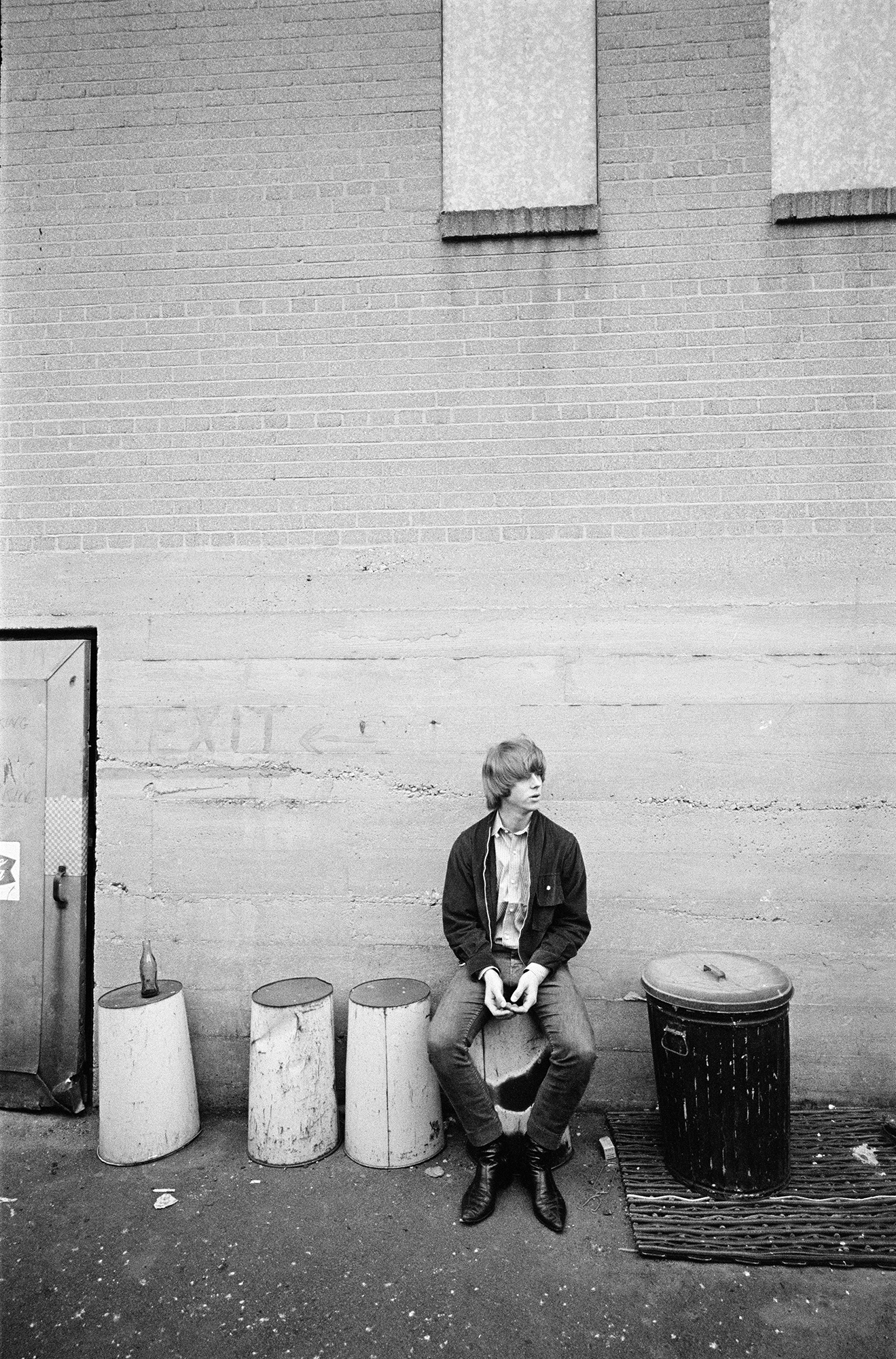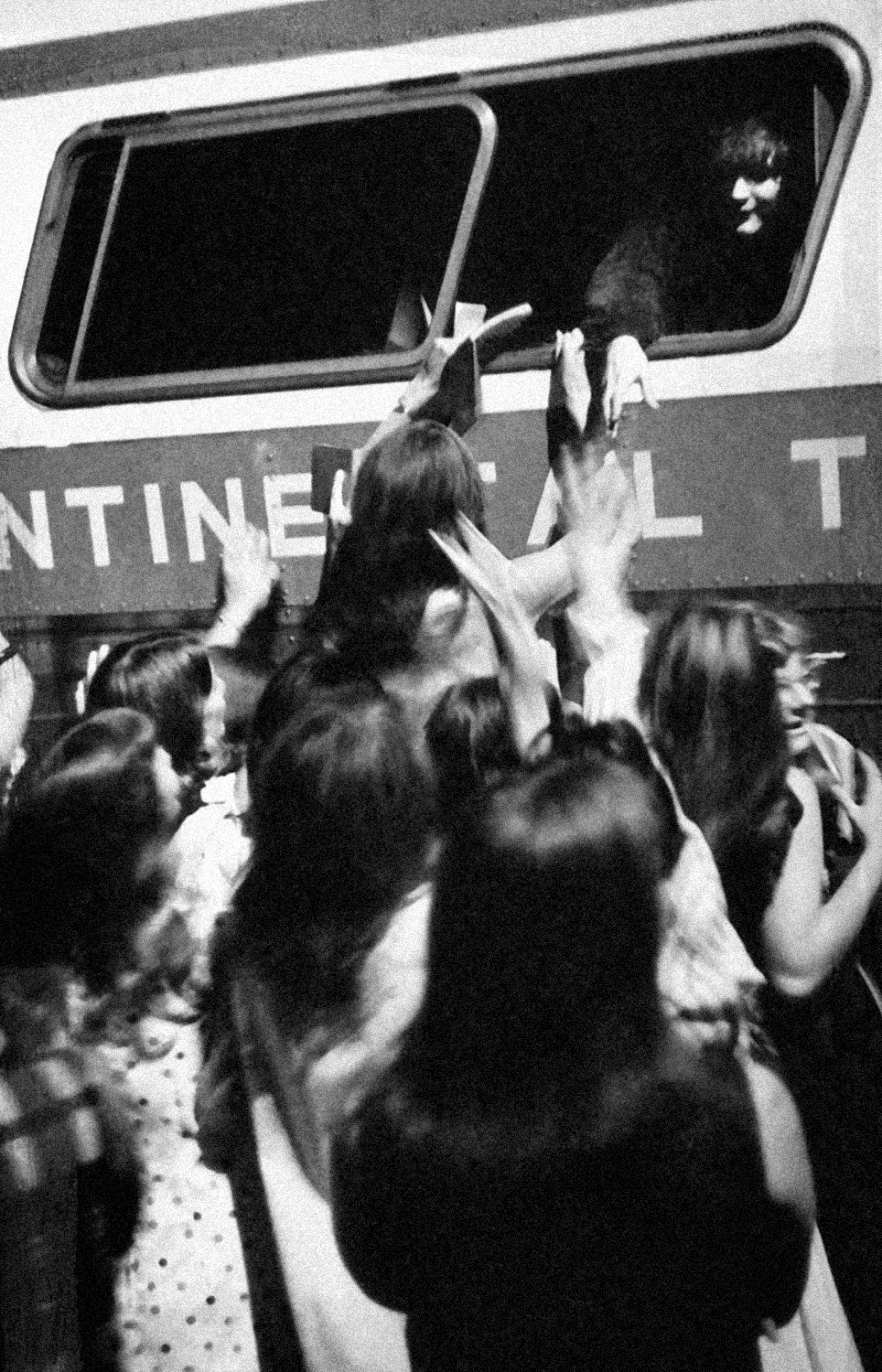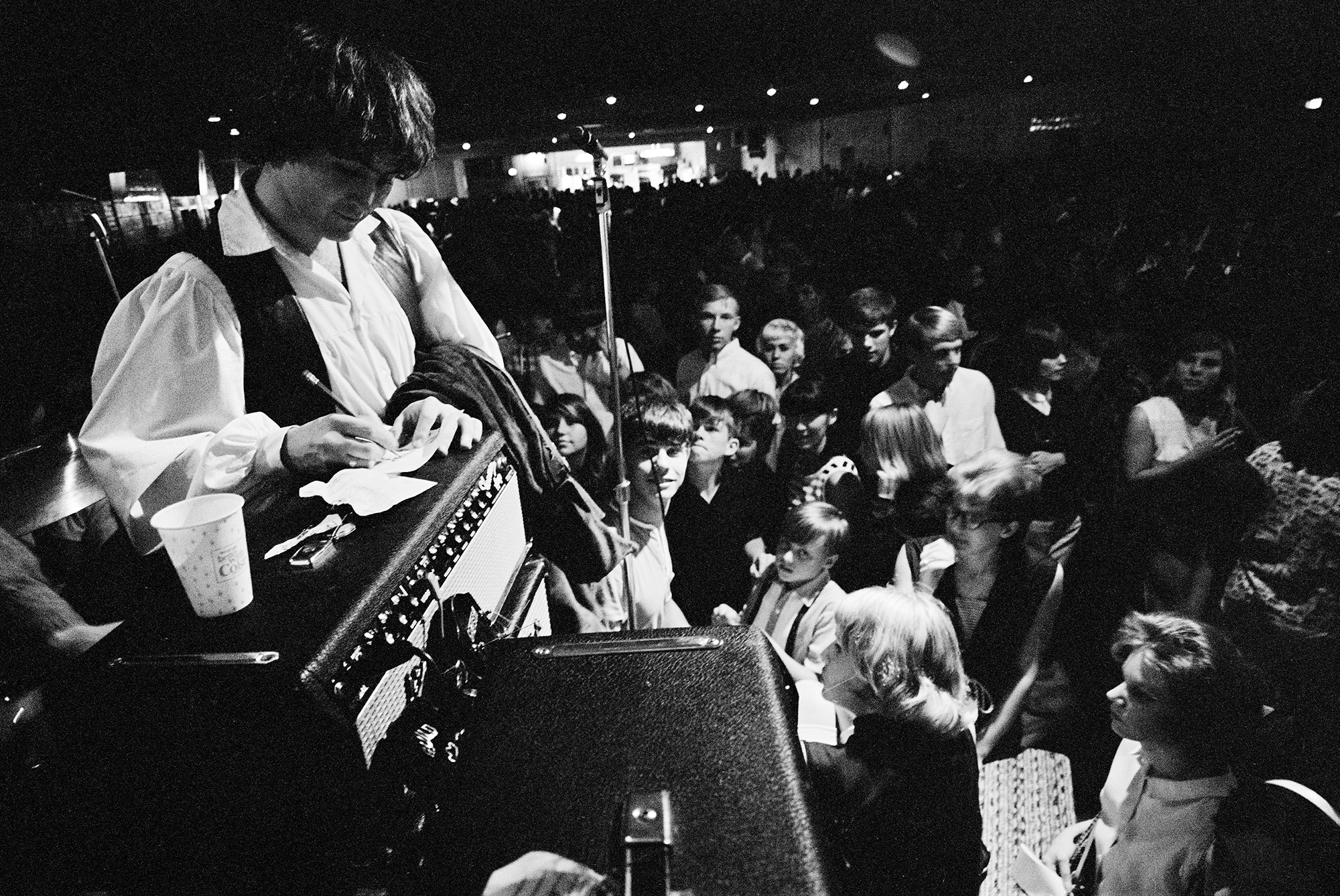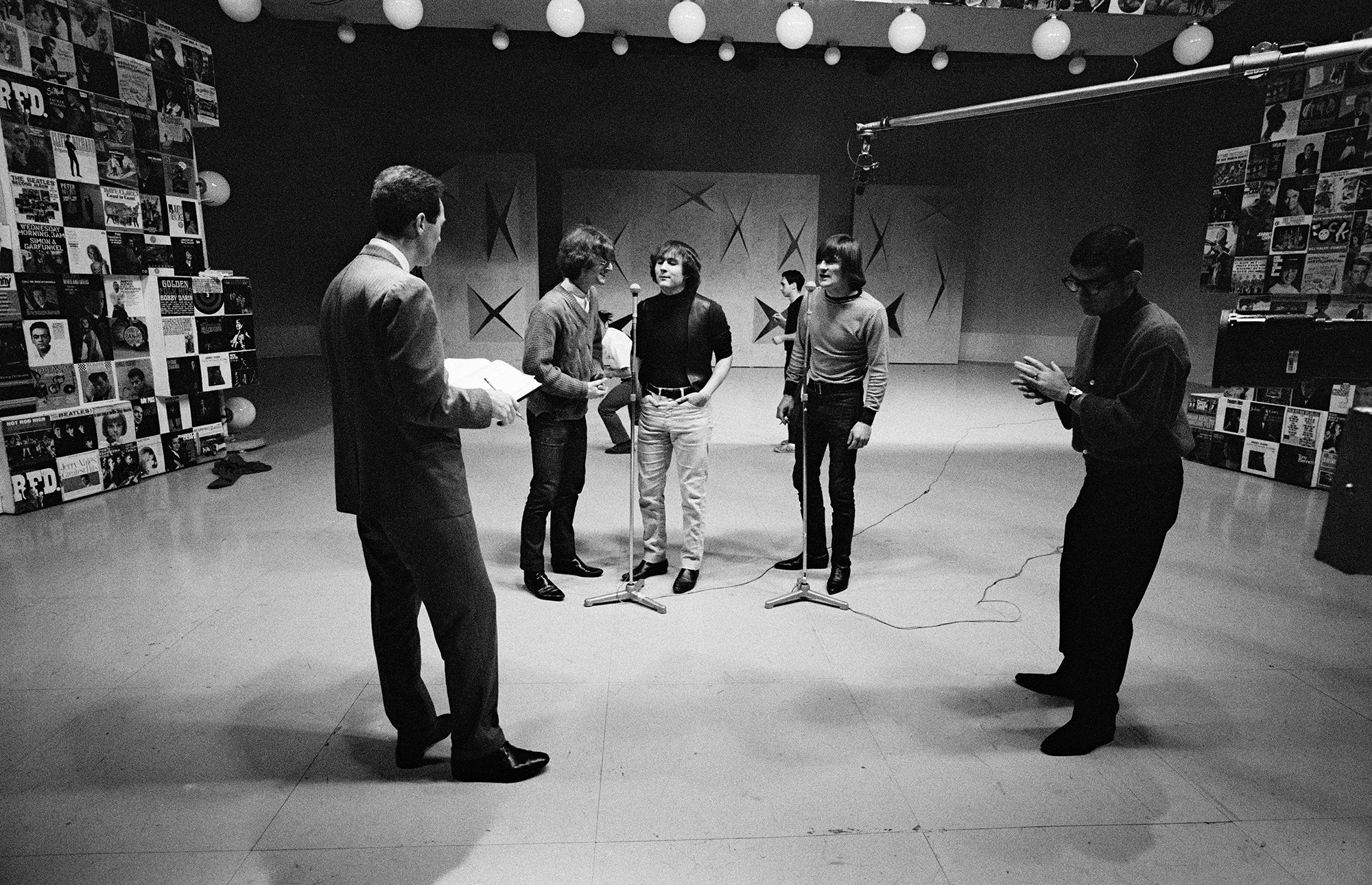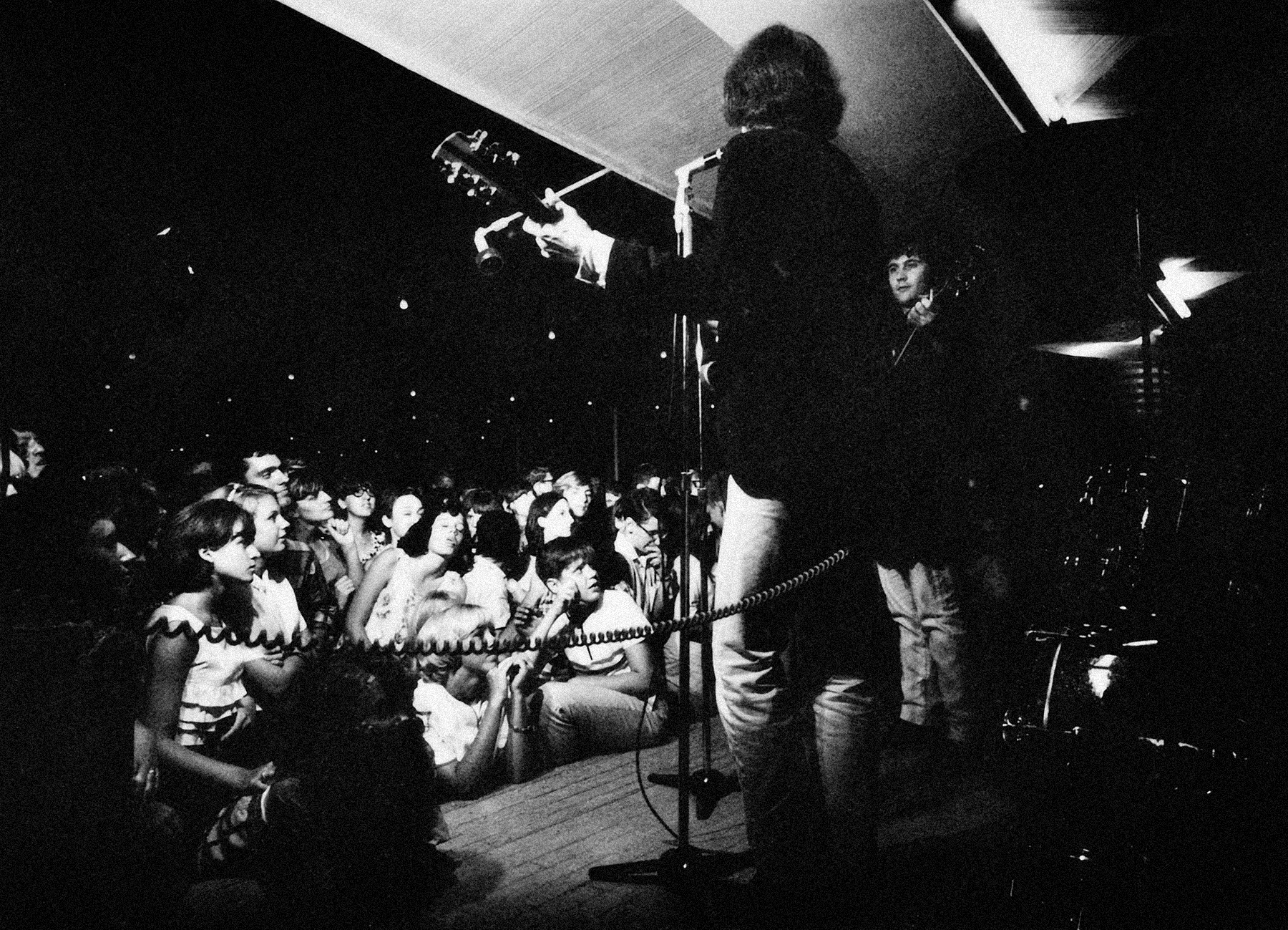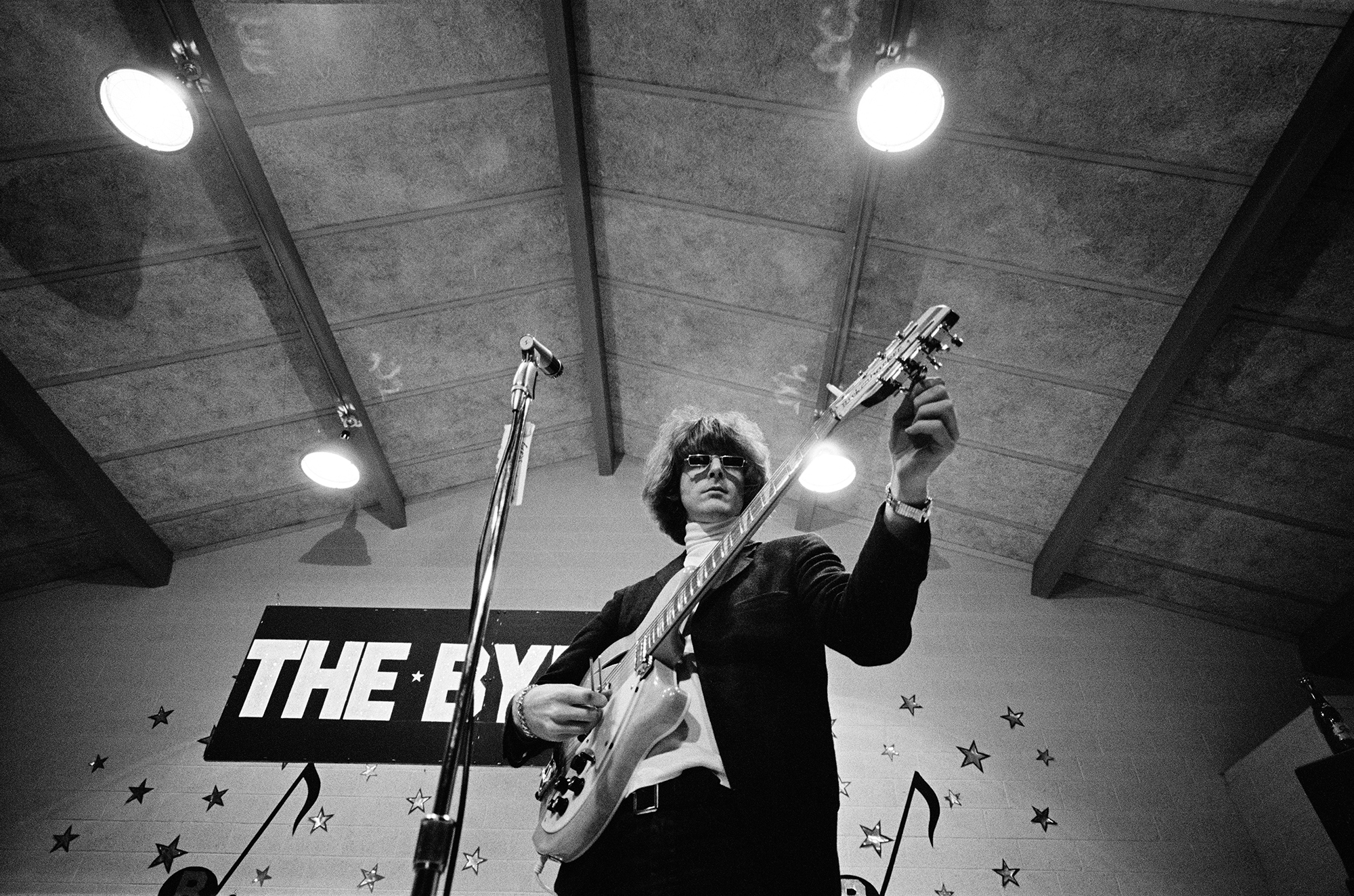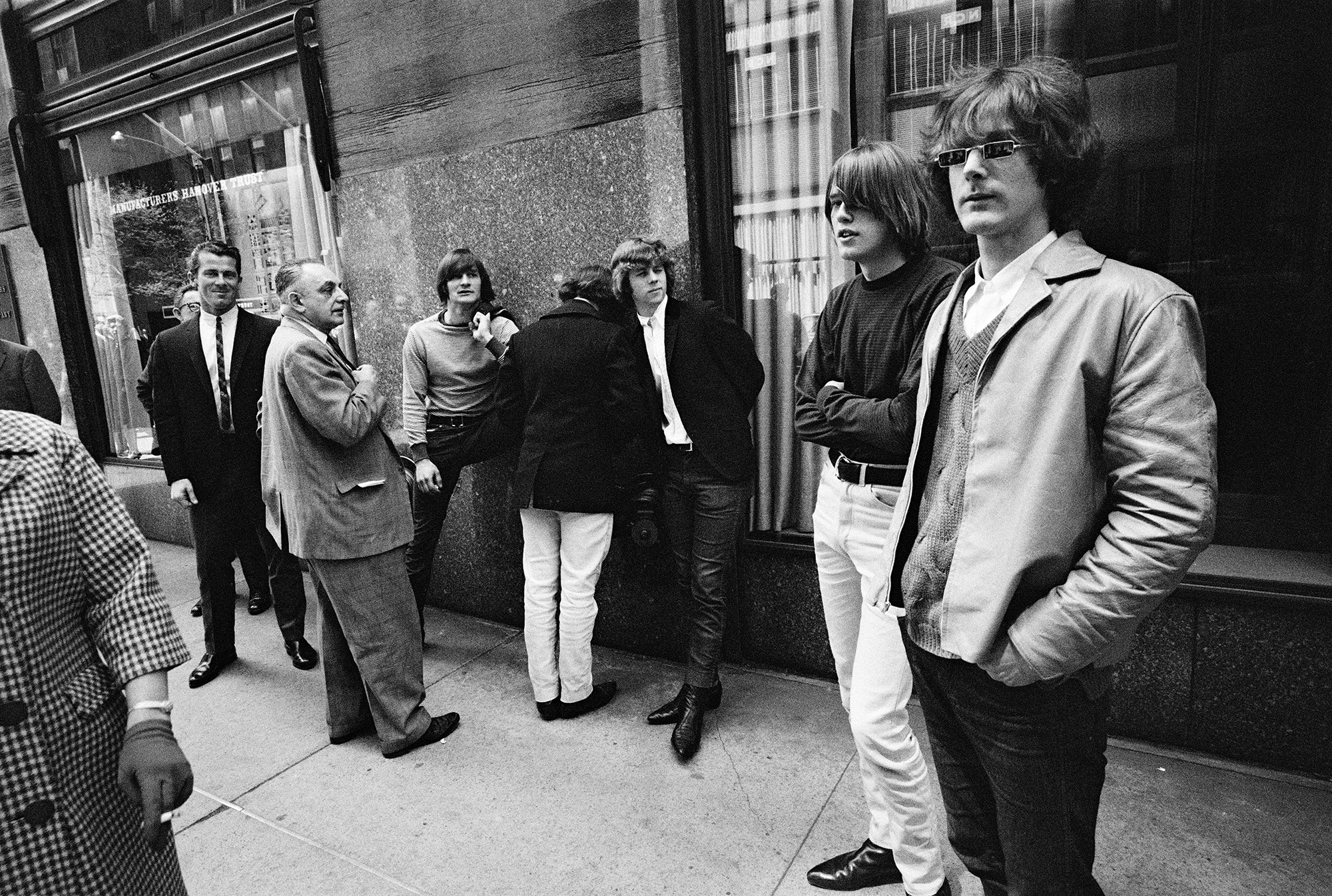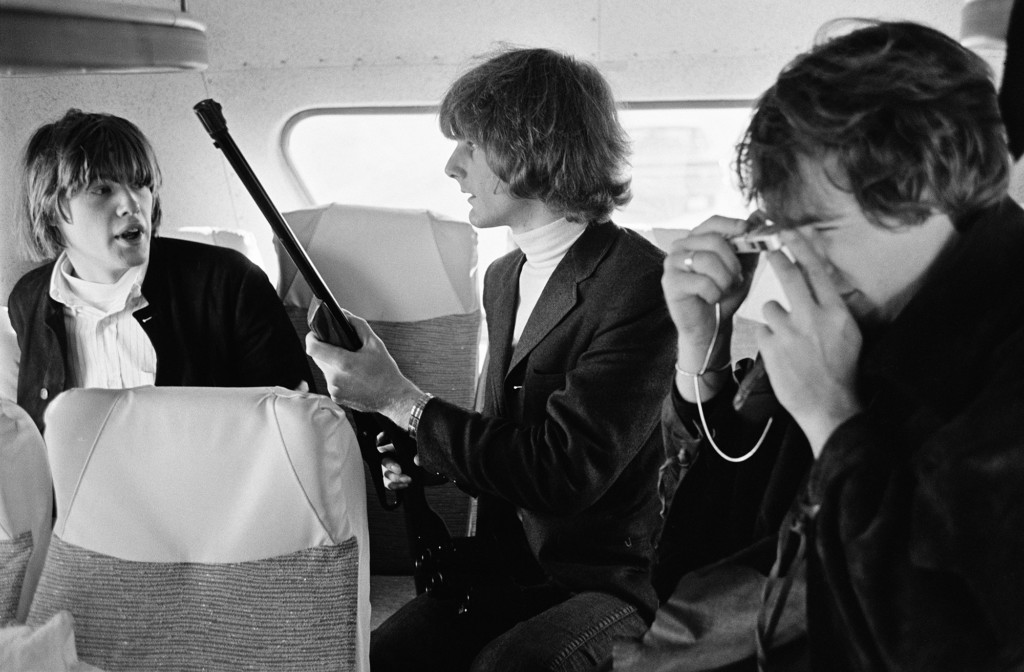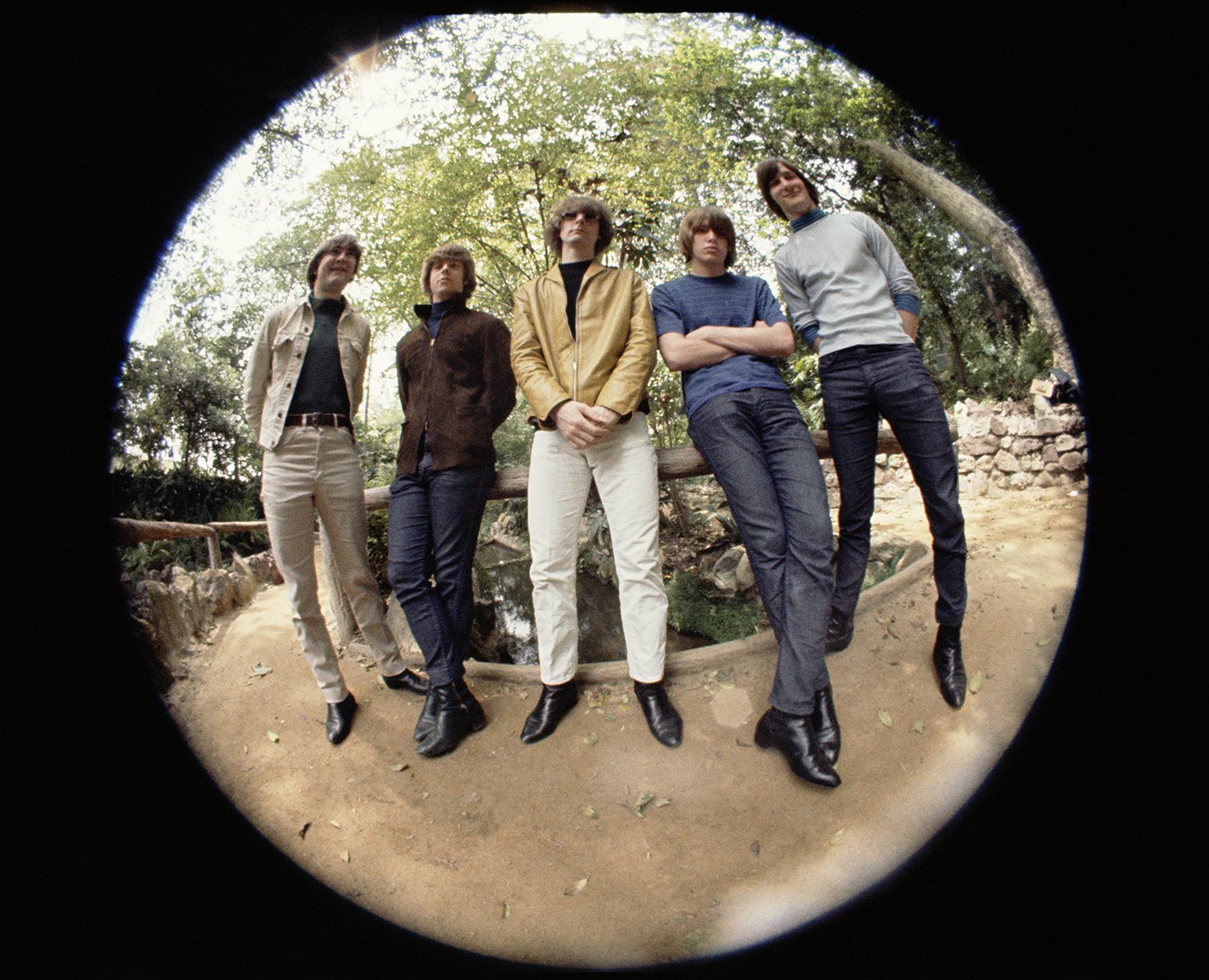Bob Dylan
Barry was the official photographer on the European leg of Bob Dylan’s 1966 world tour, in addition to photographing Dylan in 1963 and 1974
Barry Feinstein photographed Bob Dylan over an 11 year period, starting with the 1963 cover photograph for The Times They Are A-Changin’, majoring on the incendiary 1966 world tour and ending with the 1974 tour. Bob Dylan didn’t tour in the eight year void between 66 and 74, but Barry was there to capture the end of one creative peak and the start of a new one. Barry’s archive includes some of the most iconic and important photographs of Bob Dylan ever made; the 1966 portrait of Dylan in Liverpool surrounded by street kids which the BBC recreated in 2006 with as many of the original participants as they could locate; the Aust Ferry portrait used on the cover of Martin Scorcese’s No Direction Home, and many more.
Barry Feinstein passed away in 2011. Posthumous estate-stamped limited edition photographs are available to order in a range of sizes.
1963
New York City, 1963
“Columbia asked me to do an album cover, so I took Bob up to my friend John Cort’s penthouse apartment in New York City. I said, ‘Let’s go to the edge on the balcony and make some pictures.’ I was kneeling down and I said to Bob, ‘Look around, look at the landscape, the city and this and that.’ I went click, click, click. I didn’t have to shoot a lot of pictures because I knew immediately it was a very unusual shot and an angle and a moment with Bob. We looked at the proof sheet and he chose that shot. In those days the record company normally chose the picture for the cover, especially Columbia, but they let him do it this time. They did a good job. It wasn’t premeditated or anything, it was one of the quickest and easiest photo sessions I’ve ever done.” – Barry Feinstein
1966
While most people usually associate iconic Dylan imagery with the USA, the vast majority of the 1966 photographs were in fact taken in Britain and Ireland – in Birmingham, Bristol, Cardiff, Edinburgh, Liverpool, London, Sheffield, and other familiar locations.
“The mutual trust, respect and friendship we had for each other are reflected in these photographs. I liked his work, he liked mine. He knew I would make him look interesting – and he was interesting. I knew I was in the presence of genius” Barry Feinstein
“11 May, Waiting at the Aust Ferry Terminal near Bristol to go to Cardiff in Wales. They chose this shot for the cover of Scorsese’s No Direction Home CD and DVD. It’s one that Bob likes as it told it all. It has depth, he looked cool. I guess he felt it represented the moment to him. Just waiting for the ferry and it turned out to be a good picture” Barry Feinstein
“We saw this big store front with the letters ‘LSD’. We stopped to check it out. It was a betting shop. Bob went inside to see what it was like but her didn’t place a bet. ‘LSD’ was very symbolic” Barry Feinstein
“Bob and I were friends long before we worked together. We hung out and understood each other. When there was something to say we would talk, when there wasn’t we were silent. We were similar in that way, no bullshit. That’s the way it is in music. What often makes a piece of music great are the notes left out. And it’s like that with photography; knowing when to take a shot and, more importantly, when not to. I wanted my pictures to say something. I don’t really like stand-up portraits, there’s nothing there, no life, no feeling. I was much more interested in capturing real moments.” Barry Feinstein
“We were in Ireland, travelling between Dublin and Belfast, the only time I’ve ever been on a train in one country where you had to go through customs. I couldn’t understand it, it was pretty weird, they didn’t give us any trouble though, just let us through. There were only a few shows, Belfast and Dublin, but he was very popular, they loved him there and really appreciated the acoustic music. We got out a bit and looked at the countryside” Barry Feinstein
“Almost all my Dylan shots were taken unawares. We trusted each other and I captured him as he was at this moment – the loneliness and isolation of being Bob Dylan” Barry Feinstein
1974
George Harrison
Photographs by Barry Feinstein
George Harrison released All Things Must Pass on 27 November 1970. Unusually for the time, it was a triple album. George Harrison, always good with a wry turn of phrase, apparently explained it like this: “I didn’t have many tunes on Beatles records, so doing an album like All Things Must Pass was like going to the bathroom and letting it out.”
US photographer Barry Feinstein (1931-2011) took the well-known photograph of George that appeared on the album sleeve. His photograph of George indoors was used on the poster that accompanied early pressings of the record.
On the front cover, a long-haired and bearded George Harrison is captured by Barry Feinstein in his garden at Friar Park, near Henley on Thames. He is sitting on a stool, wearing a camo-effect floppy hat and wellington boots, and around him on the grass are four reclining garden gnomes. It is a surreal scene—a man at one with nature, as far from the image of ‘Beatle-George’ as is possible to get—and the gnomes are a reminder of George’s playful side, a tongue-in-cheek touch.
Barry Feinstein is probably best known for his photographs of Bob Dylan—most famously the 1966 tour in the UK and Europe. In the late 60s Barry Feinstein and his business partner Tom Wilkes ran Camouflage Productions, a photography and design business specialising in album covers. Barry started working with George Harrison around this time. All Things Must Pass was Barry’s first assignment with George, but he went on to photograph him for his next two albums, The Concert for Bangladesh and Living in the Material World.
The following limited edition prints are available to purchase.
Please allow three weeks between order and delivery
All Things Must Pass (1970)
The Concert for Bangladesh (1971)
Living in the Material World (1973)
The Byrds by Barry Feinstein
A collection of photographs from the 1965 tour.
Barry Feinstein accompanied The Byrds on a number of US tour dates in 1965, photographing them on stage and off, in concert and in performances for TV. His candid photographs document the five-piece with arguably their most significant and definitely their most eye-catching line-up—McGuinn, Crosby, Clark, Hillman and Clarke—as they broke through into the mainstream.
Barry’s estate have authorised the release of posthumous limited edition photographs for collectors in a range of physical sizes.
Other Artists
Biography
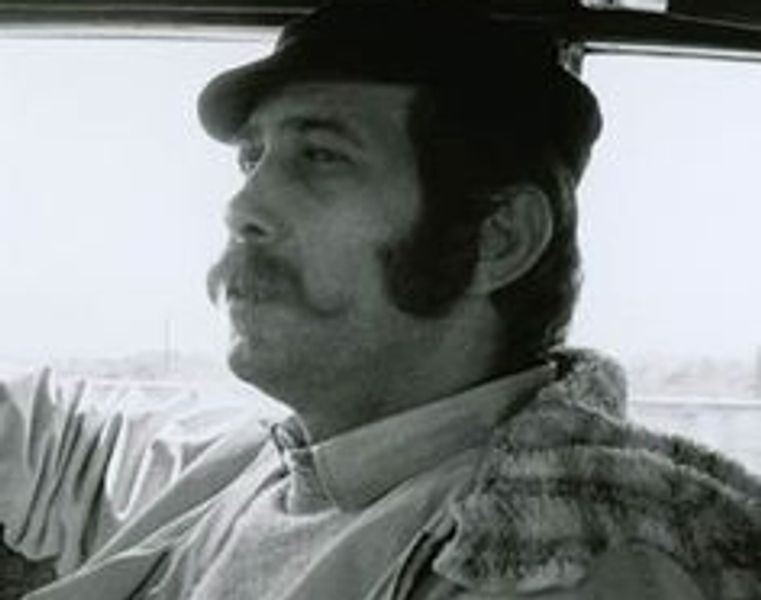
Barry Feinstein was a photographer, filmmaker, and art director responsible for creating some of the most iconic and enduring pop culture imagery of the mid- 20th century.
Especially known for his album cover photographs, Feinstein created artwork for over 500 albums, including the classic covers of All Things Must Pass by George Harrison, Pearl by Janis Joplin, Eric Clapton’s eponymous first solo album, Ringo by Ringo Starr, The Times They Are a-Changin‘ by Bob Dylan, Mr. Tambourine Man by The Byrds, and Beggars Banquet by The Rolling Stones. Ultimately Feinstein photographed almost every significant musician of the 1960’s and 70’s.
Feinstein was the exclusive photographer for Bob Dylan’s legendary 1966 European tour and again for Dylan and The Band’s 1974 US tour. As a filmmaker,he documented the Monterey Pop Festival in 1967, produced and directed the classic 1968 experimental film You Are What You Eat, and was the official still photographer and cameraman for George Harrison’s historic1970 performance, The Concert for Bangladesh.
Feinstein also photographed the leading Hollywood and political figures of his day—from Marlon Brando, Judy Garland and Elizabeth Taylor to Princess Margaret, JFK and Richard Nixon. During his lengthy and varied career, Feinstein received over thirty international Art Director’s and photojournalism awards. His photographs regularly appeared in publications such as Life, Look, Time, Esquire, GQ, Newsweek, Rolling Stone and The New York Times.
Feinstein’s photographs have been exhibited in galleries and museums worldwide, including The Museum of Modern Art, New York; the National Portrait Gallery, London; The Columbus Museum, Georgia; The National Portrait Gallery, Scotland; and Fondazione Carispezia in Italy. His prints are included in numerous public and private collections.
A number of books have been published of Feinstein’s work, including Real Moments: Bob Dylan (Omnibus, 2008), Hollywood Photo-Rhetoric (Simon & Schuster, 2008) and Unseen McQueen (Reel Art Press, 2013).
Feinstein was born in 1931 in Philadelphia and for many years lived in New York City and Los Angeles. He passed away in 2011 after a lengthy illness in Woodstock, New York, where he had lived for many years with his wife, painter Judith Jamison.
